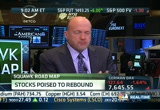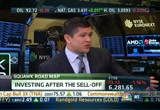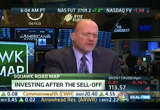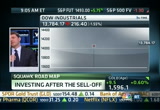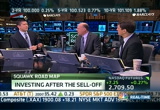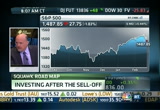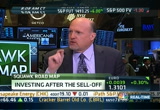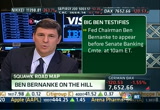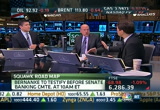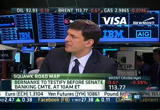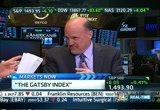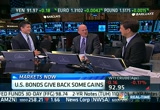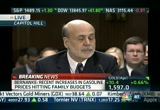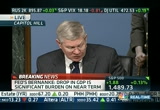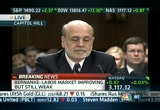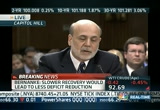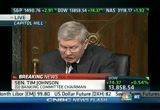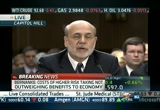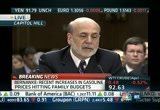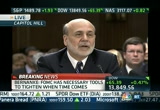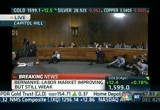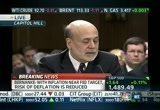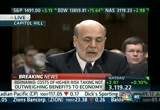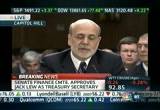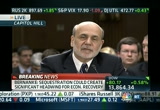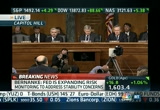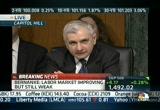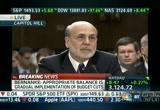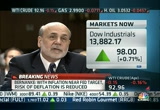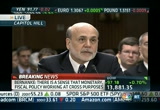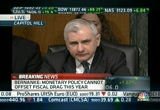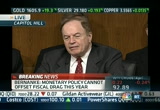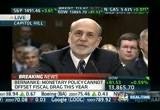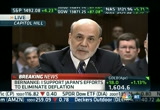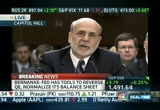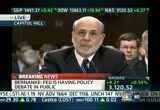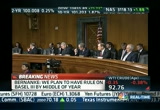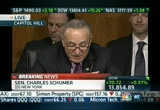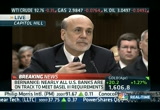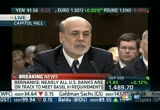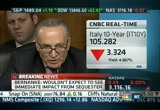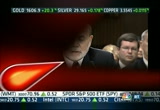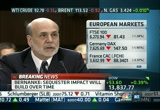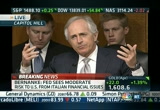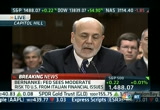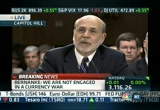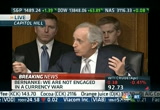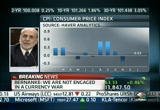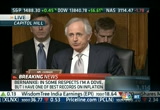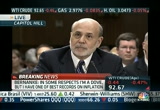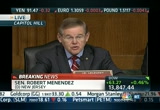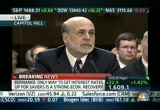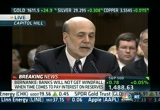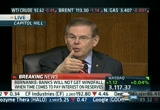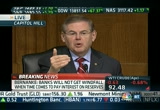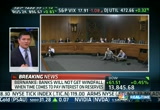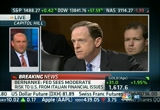tv Squawk on the Street CNBC February 26, 2013 9:00am-12:00pm EST
9:00 am
how do you keep an older car running like new? you ask a ford customer. when they tell you that you need your oil changed you got to bring it in. if your tires need to be rotated, you have to get that done as well. jackie, tell me why somebody should bring they're car here to the ford dealership for service instead of any one of those other places out there. they are going to take care of my car because this is where it came from.
9:01 am
price is right no problem, they make you feel like you're a family. get a synthetic blend oil change, tire rotation and much more, $29.95 after $10.00 rebate. if you take care of your car your car will take care of you. stock of the day. retailer lifting the full year forecast above expectations, back to 40 in september -- beginning of '07. all the way back to $40 now. great to have you. >> thanks for having me.
9:02 am
appreciate it. "squawk on the street" begins right now. good tuesday morning. welcome to "squawk on the street." i'm carl quintanilla with jim cramer, david faber. melissa is off. latest s&p case showing price index just released. got the results at the bottom of your screen. david blitzer will join us shortly to break down some of those numbers. futures do suggest some civility. after yesterday's drumming. europe did sell off hard on the open. losses in the 1% to 2% range. similar story in asia. nikkei got hit the hardest. road map says, what now. are there retail buyers waiting for a discount? if not, are the sequester fears holding them back? cramer is going to open up today's playbook. >> ben bernanke begins two days of testimony on capitol hill. and hey, what about that timing. his thoughts on qe. the sequester and perhaps even
9:03 am
italy to determine the market's direction. wall street banks going to cutback mode. goldman reportedly to start a fresh round of job cuts. as we said, though, futures on the rise, following the worst day for stocks in almost four months. the dow suffering 216 points, s&p back below 1500, this after election results in italy proved inconclusive, sparking fears that gridlock and austerity policies could once again rattle european financial stability. it caused a major sell-off in europe today, as we said. jim, does this hold? >> i think what happened yesterday is we saw the absence of retail money at the end of the day. so you had this kind of -- in -- what i thought was maybe a temporary squall that in the last hour, snowballed. i said, you can't do buybacks in the last half hour.
9:04 am
but there was no money to absorb what i thought was largely future selling. i say future selling because the volume wasn't that heavy. >> so the retail, who might have filled that gap in another scenario wasn't there. >> january we saw a tremendous -- really, a kind of re version of the way it used to be. david, i used to speak to you and mark haines about a lot of money. i thought that for a moment, a brief shining moment, it had returned. now i feel like i got faked out of my boxers. >> will it ever return? do you think somehow as a result of -- >> yeah, i do. >> living through that period, there's an expectation? i know it will come back, but in fact it's generational. >> david, the bonds, you say it every day, the bonds are such a sucker's bet. people continue to put money in a place that won't work eventually. >> no doubt. but i do think we continue to wait for that train of retail to arrive and save the day.
9:05 am
and that's not going to happen. not that we don't follow those inflows, and they are positive in tech. >> that's an important sign. >> but the last -- i mean -- >> maybe a lot of people figure it out. saying, wait a second, italy back now. what does that mean? am i really going to be dealing with this again? no government in italy for, i don't know how long. am i going to start hearing lto again or whatever -- >> hasn't our banking system got it a little bit less separate from the day when we were one and the same. morgan stanley traded as if it was a european stock again yesterday. >> and goldman's out today saying even though the results in italy are not a good case, they break the virtuous cycle of improved sentiment. they say it's not as bad as it was last summer. that's what you're saying. >> i agree with that. but i don't know whether the market participants who blew out of stocks yesterday aren't just saying, it's exactly the same. here we are back. italy, i heard stories this
9:06 am
morning, wow, the italian short rates have spiked. there are periods, whole periods in my life where i wish we had those low rates. i'm not willing to panic. >> not until we're back to 17% for the ten-year. >> thank you. >> in november of 2011. we're close. n place now, the back stock ltros, a lot of that's been paid back. now you hof the omt. however, that requires the participants to potentially agree to certain rules that it's not berlusconi-led government or one in coalition with others that agree with it. >> yesterday, it was a reversion to something i hate. a very big opening on monday. and it brings out sellers. again, that's an old pattern. i had felt that, incorrectly, that 2013 would -- remember how many times you said on this show, geez, the volatility seems to be missing? >> yeah. >> and that was a godsend, because retail doesn't like that crazy volatility. they put in the order, they buy
9:07 am
lowe's, they get the report in the 38s, next thing you know they're down very big and wish they were back in the bond funds. >> yesterday's range on the dow, 297 points, as broad as it has been for the past month. we covered that range in one day, right? >> and that's a house of pain for people. because individual investors i think were beginning to warm up to equities, because they weren't losing money as fast as they had during certain breathtaking periods. we thought the fiscal cliff would be fine and be resolved. when the market went down, when you saw press conference with boehner, it's up. clarion called short the market. the moment you see that man has a press conference. >> downward, back to macro? i don't believe that necessarily. >> because of takeovers? because of earnings per share? >> we're not going to get great barometers of potential growth. what this market does need, what would offset these concerns you're talking about is the idea that the second half is going to
9:08 am
be pretty good. i don't know what will propel that. takeover certainly helps confidence. i think we'll continue to see some pace there. we shall see. but, you know, at the same time you come with the macro factors that are bad, maybe they're going to stiff-arm some of them. >> you know, europe hasn't been good the whole way. but they came up with some plans. but we need to see some -- if you do take that box away, throw me in the shower. i was in the shower this morning. yeah! where i said, hold it, wait a second. an italian pro-growth government. would it be so bad? do we need austerity? i said, you know what, maybe it's enough. maybe we need the italian economy to do better, and what's the matter with that? it's a great manufacturing country. good service -- >> you might be okay with that. but ecb, the authorities are not, merkel's enemies -- >> they all want austerity at
9:09 am
any cost. maybe austerity is not right at this point. is that heresy? >> what road does that take you down in terms of the potential of the european union. >> suddenly on twitter, the euro is dead, the euro is dead. i think a little different government that has some austerity and some growth prospects might be needed.i'm n ecb wants. there's not been a lot of pro-growth policies put in europe. >> true. austerity measures have gotten a fair experiment here and there. bottom line, though, what do you like here, below 1500? >> well, i feel that we are -- could have another run in the cyclicals. they were down on their luck. yesterday cummins was upgraded. suddenly it was good, then it went down. look, i'm looking at these retail numbers. and i am not going to say that macy's is an aberration. home depot, go through the
9:10 am
release, blake did a terrific job. that stock's down a lot. i like retail. because it's got the domestic security. doesn't really react to berlusconi and the clown. are you allowed to call that clown a clown? >> you're referring to -- >> it was a clown. seth macfarlane, when he takes over, that could be a breakout. >> he can dance. >> bedtime for bonzo. some people thought that guy was a good president. >> some. >> i'm not saying it's not as dire. the situation remains mixed. the sequester is bad. david, you're not going to go to the national parks during the ten daks that shook the world. you won't fly during that ten-day -- >> there's your back. >> the best way to stop is never to start. old commercial. but i do think when you read there's an aircraft carrier that won't go where it's most needed because of the sequester, that's a little, let's say daunting. 250 golf courses stay up, and the aircraft doesn't go where
9:11 am
it's supposed to go. >> $85 billion has a way of getting people's attention. >> it does. >> and the continuing resolution, we're going to start hearing more and more about that as we get towards the end of this month. >> these are things we don't want to hear about. we were focused on the fundamentals for a while, and congress puts us right back, the president puts us right back, and now you're thinking, i thought i was doing better, but maybe i'm not. >> about an hour from now, ben bernanke will deliver part one of his semiannual testimony on the economy to congress. he's going to appear on capitol hill before the senate banking committee. bernanke will likely face questions regarding the potential impact of sequestration on the economy, how long the fed will continue its bond buying program aimed at spurring growth. we're going to bring you live coverage. it begins with a q&a session with the lawmakers. >> we're back in the world where people say, it's all phony.
9:12 am
when people -- when the market goes down, they come out and say, it was phony, it was all bernanke. that's all there was. i bridle at that. bernanke is not why home depot has good numbers. home depot is well managed. how high would they really climb, would they skyrocket if bernanke walked away and gave them a lack of loan demand? >> i think that's a key question. with the 10-year coming back, moving down in yield, people think there's another year where you were yelling and screaming at the beginning of the year. if they do need to remove qe, you could see a 200-base rise is not -- that's not me saying that, that's a lot of people's opinions. >> i think the 10-year is -- >> two to four in nine months? >> frankly, i'm trying to figure out about a refinancing on a property. and all i can think of is we could go two to four.
9:13 am
i go get scalded versus paying $10,000 in points and just the kind of transaction costs, the 10,000 versus the possibility of a two to four has come a long way. >> the fed at least have some understanding of the market than they did five or six years ago. >> even with the broader mix of hawks versus doves. >> i think the day is when you should question bernanke's acumen have long since passed. i think he's quite a good fed chairman. i always feel when i say that that people think i'm a lightweight. i think that bernanke's done a good job. there, i've said it. the days when i said they know nothing, those are long since past. >> are you talking about something in particular, that they did not have a sense of what was really going on underneath the market. >> now we know from the transcripts was -- >> it's true. >> yes. >> i don't understand necessarily why that would have changed.
9:14 am
you believe he's followed the proper policies to try to reinvigorate the economy, it's another thing to say they have an understanding of what's really going on in the markets. >> i think they have better sources than they used to. i really believe that. >> why? >> because -- >> there's still a lot of problems when the fed chairman calls them up and asks them a question when they're a market participant. >> i'm not going to take that call, instead of being laughed at, unlike the italian new premier. that was not a good moment for me, when the minutes came out. >> it's he who laughs lasts. >> i think people laughed at me and it bummed me out. >> you got the last laugh. >> it only took five, six years. >> at least you're still here. that's the point. >> there is no bad publicity. >> some degree, yes, i think if you're an anchor at a tv station --
9:15 am
>> we got the transcript. >> i've never been a thought in their minds. >> the fly speck's better than the guy who's laughed at. >> yeah. >> i just want to point out, there was a lot of coverage about yesterday's sell-off. nobody reads the "new york post" for market coverage, but two paragraphs buried below stories about new amtrak rail lines, you see it right here. >> yeah. >> italy rattles dynasty. that is the entirety of their market coverage from yesterday. >> i saw that, and i said, boy, maybe that is the real perspective. but the futures guys felt italy was everything. italy goes down. and then something back in the macro, i agree that's too good. maybe if they had doubled the size of that. there was a lot of stuff in the post today. this martha stewart case is fascinating to me. >> they're in a jihad over the martha stewart story. >> i want to know what martha was wearing. apparently she was wearing -- well, no one really has that. i'm looking for that detail. i was discussing it with my
9:16 am
research associate. she claims martha stewart was wearing something she bought at macy's. i think that's salacious. >> interesting calls. >> how much will they miss the quarter buy? >> radio shack -- >> how is shack? >> down 7%. same-store comps down 7%. >> is that better than down the 40% some are looking for? don't jump to a conclusion that down 7% is necessarily bad. >> we'll talk about all that stuff in a little bit. when we come back, s&p's david blitzer, the latest on the housing market. later on, the fed chairman, as david said, testifying before the senate side today at 10:00 a.m. we'll find out what the future holds for qe. we'll bring you that live. futures gaining a little steam here. hard to put it in perspective after yesterday. a lot more "squawk on the street" back in a minute. announcer: where can an investor
9:17 am
be a name and not a number? scottrade. ron: i'm never alone with scottrade. i can always call or stop by my local office. they're nearby and ready to help. so when i have questions, i can talk to someone who knows exactly how i trade. because i don't trade like everybody. i trade like me. that's why i'm with scottrade. announcer: scottrade- proud to be ranked "best overall client experience."
9:19 am
9:20 am
david blitzer is the chairman of the s&p 500 index committee. david, welcome back. good morning. >> good morning. >> pretty good numbers to close out the year. people still trying to get their arms around how distressed properties are moving some of these prices, especially in key markets. >> that's right. i think the overall picture is very, very strong. the national index, which is up 7.3% for the four quarters, ended with the end of 2012. so really, all across the country things look good. only one city of all 20 was down on the year-over-year basis. >> still, though, i'm told the index is heavily skewed by the share of distressed. that's why atlanta could be down 17%. and now up 10% year-over-year. are these numbers, are they reflective of what's happening with real buyers? >> yes, i think they are reflective of what's actually happening with real buyers. what we've seen in city after city over the last couple of
9:21 am
years is the city will get hit with a wave of foreclosure activity. atlanta a case in point, as you mentioned. for two, three, four months, the numbers bounce around a lot. you've got a whole lot of new supply coming on the market. and in any market, you're going to see a response. if you look on a year-over-year basis, what you'll see is we're continuing to see gains from about this time last year. we're continuing to build a lot of momentum into this market. and the rest of the housing numbers, housing starts, home sales, builder sentiment, all reflects the fact that the entire housing spectrum has turned around. >> david, jim cramer. one of the things i found fascinating about this is all the prices are going up, and yet we're still talking about only building a million homes this year. what is the correlation between prices going up, and how many homes we may start in 2013? >> well, i think the point is, we need to build more homes.
9:22 am
if you look over the last four, five years, we probably average maybe half a million units, and disproportionate and large amount of that was apartment construction, not single-family homes. and indeed, we hear stories about shortage of supplies. so the medium turn outlook for two, three, four years, for single-family homes, either looks very, very good, or everybody is going to be living in apartments. and i don't think the second item is what will happen. >> how did we getting a housing shortage so quickly, since i know i've been at post 9? >> well, first of all, the surplus was heavily concentrated in florida. and the southwest. nevada, arizona, southern california. it wasn't spread evenly across the country. and it wasn't spread evenly compared to population. it occurred where there was a lot of open space and it was
9:23 am
cheap to build. that was nevada and arizona. and indeed, those have come back, but all reports say they've still got a lot of half-dug foundations and two-quarter built houses or something. >> david, appreciate that very much. good to see you again. >> very good. thank you. >> david blitzer. want to know how you should be playing the market on the day before -- actually, the day of bernanke's testimony before congress? cramer's got the answers. his "mad dash" is up next. one more look at futures. up 77. that was the implied open. "squawk on the street" is back from post 9 in just a moment. ♪ ♪
9:24 am
[ male announcer ] how do you engineer a true automotive breakthrough? ♪ you give it bold new styling, unsurpassed luxury and nearly 1,000 improvements. introducing the redesigned 2013 glk. see your authorized mercedes-benz dealer for exceptional offers through mercedes-benz financial services. a talking car. but i'll tell you what impresses me. a talking train. this ge locomotive can tell you exactly where it is, what it's carrying, while using less fuel. delivering whatever the world needs, when it needs it. ♪ after all, what's the point of talking if you don't have something important to say?
9:25 am
♪ with fidelity's new options platform, we've completely integrated every step of the process, making it easier to try filters and strategies... to get a list of equity options... evaluate them with our p&l calculator... and execute faster with our more intuitive trade ticket. i'm greg stevens and i helped create fidelity's options platform. it's one more innovative reason serious investors are choosing fidelity. now get 200 free trades when you open an account. i'm up next, but now i'm singing the heartburn blues. hold on, prilosec isn't for fast relief. cue up alka-seltzer. it stops heartburn fast. ♪ oh what a relief it is!
9:26 am
five and a half minutes until the bell. let's get jim's "mad dash." you're calling them the work horses of the rally. >> the reason why i mention the cyclicals is stocks like colgate are the most overextended i've seen. merrill lynch downgrades it this morning, basically saying, look, this whole run has been terrific, but the valuation is so stretched. i find that for kimberly. i find that for color roclorox. colgate has been too much of a horse. i think it's on steroids.
9:27 am
time for that to come in. >> we talk about housing before the break. >> yes. >> some housing analysts say radiant is the last good play in that sector. >> this is a company that i recommended on friday. unfortunately it kind of went up. but they filed -- i say unfortunately, they took advantage of the strength and filed 30 million shares. i think this is going to be a red-hot deal. and here's why. every time one of these companies have been distressed, whether a real estate investment trust or a company involved in housing, the balance sheet gets skewed. analysts can raise numbers and radiant, which is a mortgage insurer, an industry left for dead, is really hitting the ball out of the park. you are so right, if shiller's right and there's a housing shorta shortage, this, even more than pullte is the way to go. >> can the markets bounce back from yesterday? we'll find out when the opening bell rings in just five minutes. recognize me.
9:28 am
9:29 am
and so much less expensive. i am your market data. and if i do say so myself, i have never looked better. superderivatives introduces dgx. data done differently. iciency. you can spot an amateur from a mile away... while going shoeless and metal-free in seconds. and you...rent from national. because only national lets you choose any car in the aisle...and go. you can even take a full-size or above, and still pay the mid-size price. now this...will work. [ male announcer ] just like you, business pro. just like you. go national. go like a pro.
9:30 am
[ babies crying ] surprise -- your house was built on an ancient burial ground. [ ghosts moaning ] surprise -- your car needs a new transmission. [ coyote howls ] how about no more surprises? now you can get all the online trading tools you need without any surprise fees. ♪ it's not rocket science. it's just common sense. from td ameritrade. you're watching cnbc "squawk
9:31 am
on the street," live from the financial capital of the world. the opening bell in just under a minute's time, a day after the worst day for the dow and the s&p since november 7th. unbelievable. we hit a five-year high and a one-month low in one session, jim. >> it's almost as if there were people just waiting to get near the levels, the all-time high levels. and then it was like, wow, let's blast them out and then you can color the news negatively. suddenly that became the reason why it's all over again. by the way, this all over thing is so predominant. people are bearish when it's good, and super bearish when things are bad. >> people may be looking for retailers to lead the charge which we'll talk about in a second. let's get the opening bell first. s&p at the top of the screen. at the big board, american assets trust headquartered in san diego. and over at the nasdaq,
9:32 am
rentacenter and furniture rental company as the name implies. we've got to work our way through home depot, sachs and macy's. >> unequivocally, i liked macy's. i think what will happen is at a certain point, sellers come in, because it's up too much, so to speak. but lundgren keeps delivering. the stock hasn't made any headway. i don't know why that is. >> i don't know either. >> don't look at us. >> is it taking share from jcpenney? is it sort of too easy? >> spring training, i served up a couple of home run balls right now. the idea was that was in transition to jcpenney. >> but granderson with the broken arm. that's us, right? >> is there a particular place where it's weaker? wasn't that extraordinary? >> yeah, that must have hurt. he's torturing apple now.
9:33 am
>> he hasn't hit a ball at all. he's missed every single ball that's thrown. >> it brings to mind the ubs call today. >> at what point do people just say, listen, this is a retailer that has to deliver. the 2015 is too late. for jcpenney. >> hasn't stopped them from rolling out a whole new series of commercials during the oscars. >> people like those commercials. >> i think there's going to be a lot of change at jcpenney's future this year. i'll make that statement. if things don't improve markedly by the end of this year, you've got two very large shareholders there. but to your point yesterday, stock hasn't done that bad. at least for a while. >> no. you taught me to look at the subculture of bonds and preferreds. >> yes. >> i do feel that the home depot number says the consumer is strong. macy's says the consumer is
9:34 am
strong. home depot is a conservative company. they kill -- they always kill it when they report. this stock had been in free-fall for the past few days. the fall seems to be arrested with this quarter. >> i like that. >> yeah. >> that's good. >> we have not talked about jpmorgan as of yet, which is having an analyst's day. news items coming out, i'm not sure if we've run any of them at the bottom of the screen in terms of potential cost cutting going on. the mortgage unit going to lose a lot of workers. they're also kind of pulling back. they're adding in certain parts. they're talking, of course, about the not understanding, or not fully appreciating the costs of the regulatory changes that are still coming. what that will mean for the bank. but all that being said, what are the shares doing, not much, right? >> david, explain what is the mortgage division over? is that cbo, guys who did
9:35 am
synthetics? sales people? or is that mortgages? >> that's more plain old. the securitization functions, all of those products, that was long ago. >> but jpmorgan, jamie dimon said there's going to be more and more lending. this doesn't necessarily preclude lending more. this is the fact that there's more people than they need. i thought it was pretty mean going out than going in. >> and they added a lot of people, too. deal with the workouts, deal with the foreclosure mess. and a lot of those other things. >> i think it's an important story to follow. because we need to see the banks come out and say, this is a good time. i still don't see a lot of regional banks, other than a bank called home street in the pacific northwest, most of the bankers come on "mad money" and you just want to say, look, where's the epi pen? come on, get them to work.
9:36 am
it's like, paddles! >> like uma thurman in "pulp fiction." >> exactly. exactly. clear. paddles clear. >> don't you think the market has already adjusted to the idea that the returns that they're never going to be what they were, but they're not bad. >> they're not bad, but there has to be more lending. if a bank keeps its money in the short-term securities, rates go up. they're not going to make money. home street said, this is the best performing bank of all the banks, by the way, and what they said the reason we're doing well is we're lending like crazy. the northwest is doing well. >> you won't have the same return, it's a simple fact. >> i guess so. i mean -- >> it doesn't mean they're not going to be healthy businesses. >> and i'm getting a read from stephanie link, who's on -- at the half. and maria bartiromo's "closing
9:37 am
bell," that it's going quite well. the charitable trust owns home depot. remember, the lowe's call did not go well. and that's really important. the lowe's call was regarded as not being as bullish. blake has a lot of credibility. i think it does matter. >> all right. let's get to bob pisani, who i think is somewhere on the trading floor. >> i am. thanks, guys. happy tuesday. so look, we're higher right across the board here. i'm checking all ten sectors. builders leading the way. up 1%. even home depot up 1%. the majority, 29 out of 30 dow stocks, are trading to the upside. how about mr. bernanke. poll of traders of what they think. generally bernanke will stay the course. that's the overwhelming consensus. he's got to. he'll basically back up bullard's comments last week that they'll keep the qe running until 2014. most of the traders feel he can't really go anywhere else, while acknowledging the
9:38 am
possibility of some kind of bubble, although he won't use that term, developing. elsewhere, sequestration, i took a poll here, too. the most immediate effect everybody seems to see is on health care and defense. but there's a lot of debate whether sequestration will have any serious effect on the stock market. bank of america had a report out this morning, the stocks will be hit because the valuations are high, not necessarily because people will get laid off, they acknowledge that, but the valuations are high. health care stocks will get hit, but the valuations will be lower. likely 2% cut will kick in if sequestration occurs. jim, this was not bad. retail, not bad for a ho-hum holiday season that everybody was moaning and groaning about here. yes, they're cautious on 2013, but the numbers were good. i just talked to retail metrics, retail earnings overall are up 11% for the fourth quarter. remember, the overall s&p 500 is up about 7%. so retailers are beating so far.
9:39 am
that's pretty good. home depot is a help. walmart was a help as well. so not bad overall. steve mann had great comments as well. i would be remiss if i didn't, as an italian, comment on italy. i'm surprised how many people called me and e-mailed me yesterday and said it's not going to make any difference. they'll have 5%, 5.5%, it will be manageable. government has been gridlocked in italy 50 out of the last 60 years. they also say italy is not going to leave the euro. i'm not sure of all of these arguments. stability in europe is based on the idea there's some kind of reform process going on and more euro integration. right now, there is no political mandate for reform in italy. none at all. this concept of the grand bargain, grand deal between the three parties seems to me a little bit of a fantasy right now. so i guess, jim, i diverge from some people who think it doesn't matter that much. i think it is a bit of an issue
9:40 am
unless they find some way to get a coalition that will satisfy the reformers. i think we could be in for more rockiness in europe. back to you. >> bob, i've got to tell you, if we didn't have mixed data, and then bring that in, you're absolutely right. it just doesn't feel right. it makes people feel there's less confidence in the system. thank you very much. >> okay. >> let's shift to bonds and the dollar. go ahead, rick. >> thank you very much. of course, everybody universally talking about the same topic, the italian elections. but what is the interpretation. seems like everybody's getting specific. you know my read? it's a referendum on a couple of issues. staying in the euro, if you're a southern european country, and the notion that a culture doesn't like to be told what to do by another culture. it's that easy. this is going to have to play out over if we look at a chart of 10-year rates to date, you can clearly
9:41 am
see, whatever you think yesterday's spin was, we moved into the 180s and we're staying in the 180s. that's what's important. 10-year boon, year-to-date, pushback historical. a little further back. you're looking at the first week in january since we've closed under 150 in a 10-year boon. let's look at the country in the middle of the news. let's look at the 10-year in italy. it was up about 30, 32 basis points there. a little under 4.5 yesterday. have we been higher? absolutely. but it's sticking. and that's a key point. these would basically be the highest yields since about the third week in november. a two-day chart of the euro currency, once again, friday, we start out at 130 1/2, we go up to 133. we're right back where we started, as anxieties continue to question the fixes in europe, the ltro payback are light. that's taking on new meaning.
9:42 am
jim, back to you. >> thank you, rick. let's check out the latest news in energy and metals. go ahead, sharon. >> italy is also a big topic here, jim. oil traders are trying to assess exactly how bad it is. they are looking at the fact that we have seen oil prices come off of the lows, so perhaps as bob mentioned, there are some out there who don't believe it's going to be that bad. we're continuing to watch weaker prices. as brent crude is right below the 114 level, the weakness is also due to the fact that some are saying there's a softer tone today in the talks over iran's nuclear program, between iran and western nations. we'll continue to watch the outcome of that. the uncertainty there. the political uncertainty in italy, though, are factors that are weighing on the oil markets. we're also watching what has happened to gold prices. we're seeing a slight uptick in gold as we wait to see what fed chairman bernanke has to say about quantitative easing, how long it will continue to last. goldman sachs has slashed its price forecast for gold, citing the recent slide we've seen in gold prices, as one of the
9:43 am
reasons as well as an increase in real interest rates. back to you, david. >> thank you very much, sharon epperson. everybody, take a look at the reit commonwealth, cwh is the ticker. it's up 33% this morning after a very interesting story developing here. related, the large real estate company with a lot of operations in the new york area, run by steve roth. low as well. joins with an activist firm. we haven't often see this, to go after cwh. 9.8% position in the company. and is acting now for a number of reasons. one, they've been building a position, but apparently cwh saw the rise in its share price and decided to do a massive offering, equity offering announced yesterday. so they have come forward with a 9.8% position. by the way, they couldn't really go much above 9.8%. they're saying, we think the assets are massively
9:44 am
undermanaged. we're talking central business district, buildings in places like philadelphia and boston, seattle to some extent. and you're undermanaging it. by the way, not to mention, you have a management structure that's skews since 2007 to 2012, your fees, the port noise, what these real estate families have never heard of, probably worth a fortune, they control something called -- the management company that's paid fees by commonwealth. it's a structure that doesn't typically exist very often in reits very often anymore. they own all of the management company that gets the fees that continue to go up. so what are they saying this morning? they're saying we want to terminate the offering, the $450 million equity offering that represented at least 32% of the outstanding shares. we want you to buy back stock with excess cash flow and proceeds from asset sales,
9:45 am
delever and internalize the management structure. so you can actually realize the underlying value of the real estate for your reit holders. you don't do it, well, listen, related is part of this. clearly they may want to own these assets. and there is an opportunity to act by written consent. if you get two-thirds of the shareholders to agree with you, you can replace the entire board. and in fact, that is perhaps the kudgel that you have here to bring the guys to the table to see what you actually get. interesting battle shaping up here in activism land. >> very interesting piece by sorkin today about -- >> focusing on marty lipton's latest memo, in de m-- democraticization. >> this actually sounds like a
9:46 am
democratic issue. and a lot of the real estate investment trusts -- you mentioned at the very beginning, that these real estate investors, they're like family businesses that are stocks. if you're steve tanger, he'll say, look, i've got the biggest stake here. but this kind of management structure -- >> where an outside firm is getting the fees to manage something. we'll see. your point is a good one. i think andrew's column is a worthy read today. there are situations where you wonder about the activists. and there are others who seem to make sense. by the way, we haven't heard from commonwealth at this point. we'll see what happens here in terms of a potential fight between the two. always interesting to see related -- they've never done this before. >> related's got very good investments. >> we have seen mr. ackman go after jcpenney. >> it's not like -- penny's got these stores within a store. to me it's like going to an
9:47 am
atlas center. >> i didn't mean to bring it back to -- >> no. but i lost my hat at the cnbc christmas party. i went back and they had already closed out that section. >> i didn't hear that. >> left a very sour taste in my mouth. i loved that hat. >> not that it's personal or anything. >> not at all. when you have no hair, man, hats play a key role. >> touche. >> do you have any idea the importance of a hat over there? >> we may never know, right, david? >> let's hope not. >> listen, you work it. >> thank you. >> we come back, f. scott fitzgerald works the markets. what's the gatsby index? cramer will explain what he talked about last night. the fed chairman testifying before the senate banking committee at the top of the hour. qe3 sure to be a top topic. before the break, one more look at this morning's early movers. tdd#: 1-800-345-2550 when i'm trading, i'm totally focused.
9:48 am
tdd#: 1-800-345-2550 tdd#: 1-800-345-2550 and the streetsmart edge trading platform from charles schwab... tdd#: 1-800-345-2550 gives me tools that help me find opportunities more easily. tdd#: 1-800-345-2550 i can even access it from the cloud and trade on any computer. tdd#: 1-800-345-2550 and with schwab mobile, tdd#: 1-800-345-2550 i can focus on trading anyplace, anytime. tdd#: 1-800-345-2550 until i choose to focus on something else. tdd#: 1-800-345-2550 all this with no trade minimums. tdd#: 1-800-345-2550 and only $8.95 a trade. tdd#: 1-800-345-2550 open an account with a $50,000 deposit, tdd#: 1-800-345-2550 and get 6 months commission-free trades. tdd#: 1-800-345-2550 call 1-866-294-5373. but at xerox we've embraced a new role. working behind the scenes to provide companies with services... like helping hr departments manage benefits and pensions for over 11 million employees. reducing document costs by up to 30%... and processing $421 billion dollars in accounts payables each year.
9:49 am
9:51 am
in things like competition. they know how to make you feel like a member of the elite. you walk into a nordstrom's or whole foods. gatsby. for those of who aren't forced to read the book in school, is there anyone who wasn't forced to read it? >> jim explaining what he's calling the gatsby index. this is an index, it's not necessarily an endorsement of the names in the index. >> thank you. i was talking with my father after the show, and pop was saying, listen, people are spending at the stores, but the stocks aren't doing much. pop, this is not about the stocks. it's about an index, about people who are different from the rest of us. people who seem to spend, no matter what. i'm trying to follow this, because the rich had their taxes raised. the rich are supposed to be as
9:52 am
hurt as anybody else. and the company stocks aren't reflecting the goodness -- except for ralph lauren. i would just like to point out that there is a proponent of this country that doesn't seem to stop spending no matter what. >> you came up with this while on vacation, right? >> i just felt what's happened is that whole foods reported, you have this great interview, and actually the quarter was -- i know people thought it was what's called a low-quality beat. but people are still paying at whole foods. kors, this is a remarkable thing. coors did a secondary, just a disaster. and yet the company did very well. so i just think it's important to keep your eye on gatsby, and i know you go further out than west eggs -- >> i go past the eggs. but thank you for telling everybody. i would share this with you from mr. fitzgerald. first rated intelligence is the ability to hold two opposed
9:53 am
ideas in mind at the same time and still retain the ability t tion. >> well, thank you. >> that may be right up your alley. >> well, thank you. when you go back and read -- the book is actually pretty good. >> pretty good? it can be read in nine hours. >> jay gatsby, originally out of chicago, tries to reinvent himself, goes to school, comes back and daisy, who actually is rich, kind of the grace kelly figure, i'm looking forward to this movie. >> the first time redford did it. >> but this is leonardo dicaprio. >> who is daisy? >> i don't know, who's daisy? if it's chastain, it's a loser. >> jennifer lawrence -- >> no, i have no idea. it's a great idea. it puts it all in a nice framework. >> it is important to remember, carl, that there is a component of people still going to nordstrom's, even though it's more expensive than macy's.
9:54 am
9:55 am
otherworldly things. but there are some things i've never seen before. this ge jet engine can understand 5,000 data samples per second. which is good for business. because planes use less fuel, spend less time on the ground and more time in the air. suddenly, faraway places don't seem so...far away. ♪
9:57 am
here's a look at the week that's been so far for the dow. as we're up 98 points today. but obviously down 216 yesterday. and february has been a struggle, jim. >> maybe that will be closed because of the sequestration, the grand canyon. >> 6 stocks in 60 seconds. lng. >> natural gas, credit suisse likes this. be careful, because it's a perspective. i like it, but speculative. >> inline. >> this thing is getting getting to much more. >> stanley works a buy? >> this is the kind of housing play that needs to come back if you're going to see a better tape. >> bdab? >> they make the seating in flights. >> got 30 seconds left.
9:58 am
taker nasdaq. >> i did not see this coming. i think there's a consolidation of stock exchanges. this stock has been a fabulous one. we tend to forget about it. >> the story i know you've been fascinated with for a few days now. >> this trial, bp, it's not just bp, it's hall i burton and transocean. people woke up and found out they're on trial, too. >> especially if bp gets their way. >> bp, that's a dicey situation. but eventually they'll get it. >> what's coming up tonight? >> this is a mini -- it looks a lot like the companies that have been taken over. you've got to be careful. there's a big coil company at nat gas, chip is terrific. we don't talk enough about the great news. they had the great breast cancer break-through. we'll talk about that and some of the other drugs in the pipeline. >> quickly, the strength of bernanke? >> i hate it. i wish it were down ahead of bernanke. you can just see someone burst in with the futures, try to
9:59 am
color the bernanke testimony. i said this on twitter. and then that's all she wrote. be careful. don't chase. >> all right. we'll see you tonight, jim, 6:00 and 11:00 eastern time. a lot of data, and of course, bernanke, after a break. ♪ ♪ [ male announcer ] how do you engineer a true automotive breakthrough? ♪ you give it bold new styling, unsurpassed luxury and nearly 1,000 improvements. introducing the redesigned 2013 glk. see your authorized mercedes-benz dealer for exceptional offers through mercedes-benz financial services.
10:02 am
the street." i'm hampton pearson live on capitol hill where we are moments away from federal reserve chairman ben bernanke delivering his semiannual monetary report to the senate banking committee. the fed chairman is going to tell lawmakers that the march 1st automatic sequestration about to kick in, could create significant headwinds for the economic recovery. citing the congressional budget office estimate of the 6% drop in gdp. the fed chairman said that will create additional near-term burdens on the recovery that is significant. besides the adverse effect on jobs and income, he says, a slower recovery would actually lead to less deficit reduction in the short run. on monetary policy, the fed chairman says the fomc will continue its treasury purchases. he also says at this point we do not see the cost of increased
10:03 am
risk taking outweighing the benefits to a strengthening recovery, and that those treasury purchases will continue until it observes a substantial improvement in the labor market. he said the monetary policy of longer term interest rates in particular is helping the recovery, especially housing, the purchase of automobiles and other durable goods. the fomc the fed chairman says have the ability to tighten concerns through, quote, substantially monitoring of the risk of the financial system. finally, his short-term views on the economy, the economy continues to expand. but at a moderate, however, uneven pace. it is picking up again this year, says the fed chairman. the labor market is improving, but remains weak, and the recent increase in gasoline prices is hitting family budgets. carl, back to you. >> hampton pearson in washington. hampton, thank you for that. we want to bring in steve
10:04 am
liesman for his reaction of those headlines. some of them not a surprise, steve. what stands out to you? >> i think his defense of monetary policy right now, the one headline i read here, says the benefits of fed asset purchases, policy accommodations are clear, and outweigh the potential costs at this point. he's talking to congress right here, carl. but he's also talking to his colleagues on the federal open market committee in saying that in this debate that's going on within the fed, he sides on the side of supporting the economy right now, with less weight on the problem of the costs. i think he's also making some very strong statements about deficit reduction, and his concern about doing too much too quickly. it seems to me, again, reading the headlines that he's upped the language a little bit on his concern about near-term deficit reduction. and finally, he's talking about the issue of how much the fed gives the treasury, which is an issue that we've highlighted over the past couple days. and he's saying, basically, that's not an issue of huge concern for the federal reserve
10:05 am
right now. the more important concern is for the federal reserve to support jobs. and again, he's making some of the strong statements that he's made in the past, virtually alone among officials in washington, i think, talking about how important it is to bring down unemployment, carl. >> all right. steve, stay right there. i want to get over to rick santelli at the cme. we've got new home sales, also consumer numbers. rick, bring us up to date. >> holy cow. january new home sales, up close to 16%. 437,000 saar, seasonally adjusted annualized rate. the best number, get this, since july of '08. now, if we move towards february and consumer confidence, it came out at 69.6. better than expected. and that is the best number since november of last year. when we had back-to-back october and november above 70. so the data, pretty hot. there's a lot of debate down
10:06 am
here. you know, lumber was moving up, and then the last four, five days, it's had a nasty correction, like a lot of commodities like copper. maybe mixed signals, but all in all, great housing number on the new home sales front. >> i tell you what, rick, let's bren in diana olick on those new home sales figures. >> not only is it incredible monthly jump, we also saw the december monthly figures revise higher. this jump is even bigger than we expected by far. the biggest monthly jump in two decades. home prices up, a surprising 2.1% year over year. the home builders have been cash strapped by labor, land, and cost of labor. you have cancellations a little higher and some variation, but again, incredible number month to month. supplies, 4.1-month supply of new homes for sale, that is very low. we have the same supply
10:07 am
situation with existing homes which were flat in sales in january. so to see this bump up is great for home builders. as david blitzer said earlier on "squawk on the street," he said, we need more supply. these are incredible numbers month to month. >> diana, thank you very much. we're up 125 points on the dow. more analysis on all that, the fed speak, and also the data in a few moments' time. let's clear up where we are now with italy. michelle caruso-cabrera is in rome with the analysis now. >> unlike the u.s. market, simon, the european markets have not recovered at all from the complete political paralysis and stalemate we have in italy as a result of last night's election. look at the mid, as we call it, the millan index. here's the one-day chart. it got hammered right at the open as it became clear that right now the country is ungovernable at this point. if we show you the one-week chart of the mid, stock market
10:08 am
actually rallied when the first numbers came out yesterday. that turned out to be wrong. in two days, almost a 9% move to the italian stock market. the market that most global investors care about is the interest rates for italy. what are they paying. they're having to pay a lot more. their interest rates, if you look at the ten-year yield has risen today. it also rose yesterday. we care about this, because italy owes the world more than $3 trillion. third largest debt in the world. we got an example of how important that is today, because they have to borrow money. they have to roll over 300 billion euros worth of debt this year. this morning they rolled over 8.7 million euros worth. they had to pay on six-month bills, 1.24% when they did the same operation last month, it was only 0.7%. so that's a big, sharp rise. that keeps going, it could be unsustainable. we're starting to hear from candidates. berlusconi, the former prime minister, what did he say about
10:09 am
italy's interest rates when he called into one of his tv networks this morning? he said, don't worry about italian interest rates, the markets are independent and they're a little bit crazy, he said. on the spreads, in other words, italy having to pay a lot more than germany. he says, why do we always have to compare ourselves to germany? the spreads are an invention, he said. now, when it came to the actual political process, he did say he doesn't think there should be another round of elections, which is a possibility. he did say he would absolutely not do any kind of coalition with mario monti. he's open maybe to a coalition with the leaders of the left. we'll see if that ever comes to pass. he made his dislike of mario monti extremely clear when he was calling him to the tv station. he said if mario monti hadn't gotten 10% of the vote, in other words, if he didn't get enough votes to get into parliament, berlusconi said he would have gotten drunk celebrating on
10:10 am
that. because monti's party is active in parliament, he's going to give away the wine to his friends so they can drink it instead. the comedian who did phenomenally well just spoke to italian tv as well. and he's not going to go along with any coalition whatsoever. back to you. >> a lot of unanswered questions. what's interesting is we still have the triple-digit gain on the dow here. michelle, for the moment, thank you very much. >> yeah. when we come back, as soon as the fed chairman begins to speak over on capitol hill, there's a live shot, we'll bring you that full coverage live. plus, jpmorgan ceo jamie dimon addressing investors in new york. how will he respond to shareholders trying to strip him from the chairman role. we'll talk about that after the break.
10:11 am
how do traders using technical analysis streamline their process? at fidelity, we do it by merging two tools into one. combining your customized charts with leading-edge analysis tools from recognia so you can quickly spot key trends and possible entry and exit points. we like this idea so much that we've applied for a patent. i'm colin beck of fidelity investments. our integrated technical analysis is one more innovative reason serious investors are choosing fidelity. now get 200 free trades when you open an account.
10:13 am
the dow just up almost 100 points here as we wait for fed chairman bernanke to begin his testimony. we've gotten positive numbers on new home sales, consumer confidence not bad. we read through a statement. let's bring steve liesman on what to expect. and what you expected versus what you saw in the statement, if anything surprised you, steve. >> i want to point out that the new home sale numbers couldn't arrive at a better time for bernanke. he argues in his testimony that the economy has been helped substantially by lower rates. especially the interest rate sensitive sectors. and this rethinking of what happened in december, as well as the shock is the word that the
10:14 am
wires use, of the january numbers, suggests that the interest rate sensitive sectors are doing better than what the chairman expected. this issue about what he's saying about sequestration, i think that's going to be a big part of what's happening here. as i said earlier, he used stronger language than i've seen him use in the past. he seems to be arguing with doing away with sequestration entirely. he said given the pace of the economic growth, this additional near's term burden on the recovery is significant, besides having adverse effect on jobs. it could lead to less actual deficit reduction. he urges to address this problem, congress and administration should consider replacing the sharp front-loaded spending cuts required by the sequestration with policies that lower the federal deficit gradually. he doesn't often give direct advice to the congress and the administration, but in this case he seems to be going further than he has in the past on this
10:15 am
issue. >> it's two-edged what he's saying for the market. on the one hand he's playing up the prospects of the need for qe, and reducing the tail risk from the withdrawal from that. this is a severe economic warning when he talks about significant headwinds. >> right. >> if the sequester is triggered in what he just described to you as glacial pace of recovery. this is a very negative second half to what he's saying here, isn't it? >> right. and he's emphasizing the past, which is that fed policy cannot undo what fiscal policy does in the way of cuts. and i think he's saying, look, we're doing the best we can. we have our foot on the accelerator, as far down as it will go. certainly politically within the fed. he said, we need a little help from the fiscal side, otherwise you're going to get this problem, and he's warning congress that deficit reduction, or front-loaded deficit reduction will lead to declines in gdp, which leads to more
10:16 am
deficits. that's a truism that economists like to emphasize. >> you mentioned earlier, steve, that he was talking not just to congress, but to the hawks on his committee. what is that message specifically and how strongly worded is it? >> okay. so the federal reserve in september decided to make a pretty radical policy change, as we watched the fed chairman make his way to the table to testify. and that change is, we'll keep doing qe until we get substantial improvement in the labor market. there was a little tag line on the end that said, we're going to keep account of costs and the efficacy of this. for some members of the fmoc, they have raised the cost to be more important than the substantial improvement in the labor market. there's this debate going on inside of the fed right now how much those costs matter. and what i think the fed chairman is doing is saying, look, i have looked at this, and i believe the benefits outweigh the costs. that's the significance of that right there. >> steve, thank you for that. we'll come back to you.
10:17 am
obviously a lot this morning. there will be a little bit in the way of introduction here. but to the fed chairman, in the meantime let's dig deeper what we might expect from bernanke over the next hour or so. let's bring in scott, and tom at rbc. good morning to you, guys. >> good morning. >> good morning. >> judging from the headlines at the top of the hour, how is this going to go? >> me? >> sure. >> i think it's -- look, i think bernanke is going to push back on any of the hawkish talk we've seen recently. i've only seen the headlines so far. certainly the headlines are a bit more on the dovish side. i think also he's suggesting, and i think this will be part of the messaging from the fed is, look, we're going to continue to keep qe in place. but i think you have to recognize the longer we keep qe in place, the greater the risk to the exit. no one's focused on the exit at this point. but i think that's obviously something -- the next big step
10:18 am
for the fed. the qe will remain in place to the end of the year. but the further you go beyond that, it comes with risk, it comes with consequence. i think that's a conversation the fed will continue to have. today in particular, bernanke will remain dovish, we think. >> scott, it does seem like his mission is in part at least to reassure people that the gravitational center of the committee remains with the yellens and himself, yes? >> well, you know, i think the market misread the minutes. he's going to spend a lot of time today telling us that the fed's going to be very easy for an extremely long period of time. the last thing they want to do, the last thing ben bernanke wants to do is spook this market into thinking that the fed's going to pull back anytime soon. and so, you know, that's something they realize now. he's going to spend a lot of time doing it today. he's going to get questions from the various committee members that, you know, some are worried about inflation, others think we
10:19 am
need more juice in the system. but basically, he's going to be telling us, we're easy for a long period of time. don't worry about us pulling back the punch bowl. >> guys, stay with us if you will. we'll squeeze in a quick commercial break and we'll return to the discussion, and indeed, to the testimony of the fed chairman. stay with us on cnbc. love about her. but your erectile dysfunction - you know, that could be a question of blood flow. cialis tadalafil for daily use helps you be ready anytime the moment's right. you can be more confident in your ability to be ready. and the same cialis is the only daily ed tablet approved to treat ed and symptoms of bph, like needing to go frequently or urgently. tell your doctor about all your medical conditions and medications, and ask if your heart is healthy enough for sexual activity. do not take cialis if you take nitrates for chest pain, as this may cause an unsafe drop in blood pressure. do not drink alcohol in excess with cialis. side effects may include headache, upset stomach, delayed backache or muscle ache. to avoid long-term injury, seek immediate medical help for an erection lasting more than four hours.
10:20 am
if you have any sudden decrease or loss in hearing or vision, or if you have any allergic reactions such as rash, hives, swelling of the lips, tongue or throat, or difficulty breathing or swallowing, stop taking cialis and get medical help right away. ask your doctor about cialis for daily use and a 30-tablet free trial. [ male announcer ] when we built the cadillac ats from the ground up to be the world's best sport sedan... ♪ ...people noticed. ♪ the all-new cadillac ats -- 2013 north american car of the year. ♪ for a limited time, take advantage of this exceptional offer on the all-new cadillac ats.
10:21 am
transit fares! as in the 37 billion transit fares we help collect each year. no? oh, right. you're thinking of the 1.6 million daily customer care interactions xerox handles. or the 900 million health insurance claims we process. so, it's no surprise to you that companies depend on today's xerox for services that simplify how work gets done. which is...pretty much what we've always stood for. with xerox, you're ready for real business.
10:22 am
welcome back to "squawk on the street." breaking news from new york state controller thomas di napoli. he said bonuses on wall street rose to $20 billion. that's 8% higher than for the year 2011. motivated at least in part by tax strategies. employers moved certain payments due to high income individuals from 2013 where they may have been scheduled to 2012 to help folks take advantage of lower tax rates that were in -- that were present last year. the other thing of note is that there are more growth -- there's more job growth coming from industries other than securities, you guys, than from wall street. as a matter of fact, wall street really has not regained the jobs lost in the financial crisis, and the growth that is coming,
10:23 am
is coming from outside of that business. >> kate, very good stuff. thanks so much. as we await the fed chairman on the hill, let's bring back our panel, scott and tom. scott, i'd love to hear your thoughts on what you said so far in the remarks, that the embargo just lifted on the sequester. it sounds like he's going to try to carry some water for the white house, and tell people that this is going to be, in his words, significant to gdp. >> well, you know, carl, if you look at the formula for gdp, government spending is part of that. so if you cut back on government spending, it's going to be a head wind for gdp. my personal opinion is you have to start somewhere. a lot of the people in the media are using terms like severe and draconian to describe these cuts. i don't see it as that at all. it's 2.5% of the budget, or something like that, granted, only the discretionary part of the budget. but i think ben bernanke's going to say that we need congress to
10:24 am
act here. he doesn't want to see these automatic cuts, or at least the way they're structured right now. but i think a lot of people in the general public would like to see some cuts. i'm one of them. but it's definitely going to create a little bit of a headwind for gdp. >> we're looking at a man, the ranking member on the committee, republican from idaho, who like many republicans, tom, would like to see this thing go into effect. he might get tough questions from shelby or vitter or toume, wouldn't you think? tom, you with us still? >> yeah, hi. look, i think at the end of the day, this whole conversation on the sequester is -- there's a level of folks bei a bis disingenuous on this conversation. as scott said, there's no question that the sequester will be a hit from a gdp perspective in the u.s. but i think you have to remember, particularly with
10:25 am
regard to the categories that it will hit, you know, it seems a little disingenuous to say that the first responders are going to get cut. i think you have responsibility for this budget and the sequester gives these departments responsibility. you can basically cut your budget however you see fit. and i think you'll be hard pressed to make an argument that you'll see first responders actually get cut. but make no mistake, we're building in about half a percentage point hit to gdp for 2013 from the sequester. >> scott, can i just come back on the major point that you're making that you believe ben bernanke will lay out a very dovish message for the markets. standards bank points out this morning that actually the job of the humphrey testimony, the fomc and the board in general. >> let's toss to the committee. here's the fed chairman. >> i thank you for being here today to testify on the report to the congress.
10:26 am
your written statement will be included in the record. chairman bernanke, you may begin your testimony. >> thank you, mr. chairman, ranking members. i'm pleased to present the federal reserve's semiannual monetary policy report. i'm going to begin with a short summary of current economic conditions, and then discuss aspects, monetary and fiscal policy. since i last reported to this committee in mid-2012, economic activity in the united states has continued to expand at a moderate, if somewhat uneven pace. in particular, real gdp is estimated to have risen at an annual rate of 3% in the third quarter, but flat in the fourth quarter. it does not appear to reflect a stalling out of the recovery. rather, economic activity was temporarily restrained by weather related disruptions, and by transitory declines in a few
10:27 am
volatile categories of spending, even as demand for u.s. households and businesses continued to expand. available information suggests economic growth has picked up again this year. consistent with the moderate pace of economic growth, conditions in the labor market have been improving gradually. since july, nonfarm payroll employment has increased by 175,000 jobs per month on average, and the unemployment rate declined .3 of a percentage point to 7.9% over the same period. cumulatively, private sector payrolls have now grown by 6.1 million jobs, since the low point in early 2010. the unemployment rate has fallen a bit more than 2 percentage points since the cyclical peak in late 2009. despite these gains, however, the job market remains generally weak, with the unemployment rate well above its longer run normal level. about 4.7 million of the unemployed have been without a job for six months or more, and millions more would like
10:28 am
full-time employment but are able to find only part-time work. high unemployment has substantial costs, including not only the hardship faced by the unemployed and their families, but the potential of our economy as a whole. lengthy periods of unemployment, underemployment can erode workers' skills and attachment to the labor force or prevent young people from getting skills and experience in the first place. it significantly reduces their earnings in the longer term. the loss of output in earnings associated with high unemployment also reduces government revenues and increases spending, thereby leading to larger deficits and higher levels of debt. the recent increase in gasoline prices which reflects both higher crude prices and margins is hitting family budgets. however, overall, inflation remains low. over the second half of 2012, the price index for personal consumption rose at an annual rate of 1.5%, similar to the
10:29 am
rate of increase in the first half of the year. measures of longer term inflation expectations have remained in the narrow ranges seen over the past several years. against this back drop, the federal market committee, fomc, anticipates inflation over the medium term will likely run at or below its 2% objective. with unemployment well above normal levels, and inflation subdued, progress toward the federal reserve's mandated objectives of maximum employment and price stability has required a highly accommodative monetary policy. under normal circumstances, policy accommodation will be provided through reductions in the fomc's target for the federal funds rate, the interest rate on overnight loans between banks. however, as this rate has been close to zero since december 2008, the federal reserve has had to use alternative policy tools. these alternative tools have fallen into two categories. the first is forward guidance
10:30 am
regarding the fomc's anticipated path for the federal funds rate. since longer term interest rates reflect market expectations for shorter term rates over time, our guidance influences longer term rates and thus supports a stronger recovery. the formulation of this guidance has evolved over time. between august 2011 and december 2012, the committee used calendar dates to indicate how long it expected economic conditions to warrant exceptionally low levels to the federal funds rate. at its december 2012 meeting, the fomc agreed to shift from explicit guidance on how it expects the policy rate to respond to economic developments. specifically, the december post-meeting statement indicated that the current exceptionally low range for the federal funds rate, quote, will be appropriate as long as the unemployment rate remains above 6.5%, inflation between one and two years ahead is no more than half a percentage point against the longer run goal and longer term
10:31 am
inflation expectations remain anchored, close quote. an advantage of the new formulation relative to the previous state based guidance is that it allows market participants and the public to update their monetary expectations more accurately in response to new information about the economic outlook. the new guidance also serves to underscore the committee's intention to maintain accommodation as long as needed to promote a stronger economic recovery with stable prices. the second type of nontraditional policy tool employed by the fonc is large-scale purchases of longer term securities, which are intended to support economic growth by putting downward pressure on longer term interest rates. the federal reserve has engaged in several rounds of such purchases since 2008. last september the fomc announced it would purchase agent based mortgage backed securities, and in december the committee stated that in additi
10:32 am
addition, beginning in january it would purchase treasury securities at an initial pace of $45 billion per month. these additional purchases of longer term treasury securities replace the purchases we were conducting under our now completed maturity extension program, which lengthened the securities portfolio without increasing its size. the fomc has indicated that it will continue purchases until it observes a substantial improvement for the outlook for the labor market in a context of price stability. the committee also satd that in determining the size, pace and composition much its asset purchases, it would take appropriate account of their likely efficacy and costs. in other words, as with all of its policy decisions, the committee continues to assess its program of asset purchases within a cost benefit framework. in the current economic environment, the benefits of asset purchases, and a policy of accommodation more generally, are clear. monetary policies providing important support to the
10:33 am
recovery, while keeping inflation close to the fomc's 2% objective. notably, keeping longer term interest rates low has helped spark recovery in the housing market, and led to increased sales in production of automobiles and other durable goods. by raising employment and household wealth, for example through higher home prices, these developments have in turn supported consumer sentiment and spending. highly accommodative monetary policy has several potential costs and risks, which the committee is monitoring closely. for example, further expansion of the federal reserve's balance sheet, in our ability to exit smoothly from our accommodative policies at the appropriate time, inflation expectations could rise putting the objective at risk. however, the committee remains confident that it has the tools necessary to tighten monetary policy when the time comes to do so. as i noted, inflation is currently subdued and inflation
10:34 am
expectations appear rel anchored. the fomc nor the private forecasters are projecting the development of inflation pressures. another potential cost the committee takes seriously is the possibility that low interest rates if maintained for a considerable period of time could hurt the financial stability. they could take on more credit risk, duration risk or leverage. on the other hand, some risk taking, such as when an entrepreneur takes out a loan to start a new business, or an existing firm expands capacity, is a necessary element of a healthy economic recovery. moreover, although accommodative monetary policies may increase certain types of risk taking, they also serve in some ways to reduce the risk in the system, most importantly by strengthening the overall economy, but also by encouraging firms to rely more on longer term funding, and by reducing debt service costs for
10:35 am
households and businesses. in any case, the federal reserve is responding actively to financial stability concerns through substantially expanded monitoring of emerging risks in the financial system. an approach to the firms it takes a more systemic perspective and the ongoing implementation of reforms to make the financial system more transparent and resilient. although a long period of low rates could encourage risk taking, and pay close attention to such developments is certainly warranted. to this point, we do not see potential costs to the increased risk taking in some financial markets is outweighing the benefits of promoting a stronger economic recovery and more rapid job creation. another aspect of the federal reserve's reserve policies that have been discussed is the implications to the federal budget. the federal reserve earns substantial interest on the assets it holds in its portfolio, and other than the amount needed to fund our cost of operations, all net income is remitted back to the treasury.
10:36 am
with the expansion of the federal reserve's balance sheet, yearly remittances have tripled in recent years totaling approximately $290 billion between 2009 and 2012. however, if the economy continues to strengthen as we anticipate, and policy accommodation is accordingly reduced, these remittances would likely decline in coming years. federal reserve analysis shows that remittances to the treasury could be quite low for a time in some scenarios. particularly if interest rates were to rise quickly. however, even in such scenarios, it is highly likely the remittances affected by the federal reserve purchases will remain higher than the pre-crisis norm, perhaps substantially so. moreover, to the extent that monetary policy promotes growth and job creation, the resulting reduction in the federal deficit would drarv any variation in the federal reserve's remittances to the treasury. although monetary policy is
10:37 am
working to promote a more robust recovery, it cannot carry the entire burden of ensuring a speedier return to economic health. the economy's performance both over the near term and in the longer run will depend on the course of fiscal policy. the challenge for the congress and the administration is to put the federal budget on a sustainable long-run path that promotes economic growth and stability without unnecessarily impeding the current recovery. significant progress has been made recently toward reducing the federal budget deficit over the next few years. the projections released earlier this month by the cbo indicate under current law the deficit will narrow from last year to 2.5% in fiscal 2015. as a result, the federal debt held by the public including that held by the federal reserve is projected to remain roughly 75% of gdp through much of the current decade. however, a substantial portion of the recent progress in lowering the deficit has been
10:38 am
concentrated at near term budget changes which taken together could create a significant headwind for the economic recovery. the cbo estimates the deficit reduction policies in current law will slow the pace of real gdp growth by about 1.5 percentage points this year, relative to what it would have been otherwise. a significant portion of this effect is related to the automatic spending sequestration that is scheduled to begin on march 1st, which according to the cbo's estimates will contribute about .6 of a percentage point to the fiscal drag on economic growth this year. given the still moderate underlying pace of economic growth, this near's term burden on the recovery is significant. moreover, besides having adverse effects on jobs and incomes, a slower recovery would lead to less actual deficit reduction in the short run for any given set of fiscal actions. at the same time, despite progress in near's term budget deficits, the difficult process of addressing longer term fiscal
10:39 am
imbalances has only begun. indeed, the kbo projects the federal deficit and debt as percentage of gdp will begin rising again in the latter part of this decade, reflecting in large part the aging population and fast rising health care costs. to promote economic growth in the longer term and to preserve economic and financial stability, fiscal policy makers will have to put the federal budget on a sustainable long-run path that first stabilizes the ratio of federal debt to gdp and given the current of debt, eventually places that ratio on a downward trajectory. between 1960 and the onset of the financial crisis, federal debt averaged less than 40% of gdp. this relatively low level of debt provided the nation much needed flexibility to meet the economic challenges for the past few years. replenishing this fiscal capacity will give future congresses and administrations greater scope to deal with unforeseen events. to address both the near and longer term issues, the congress
10:40 am
and the administration should consider replacing the sharp front loaded spending cuts required by the sequestration with policies that reduce the federal deficit more gradually in the near term, but more substantially in the longer run. such an approach could lessen the near term fiscal headwinds facing the recovery, while more effectively addressing the longer term imbalances in the federal budget. finally, the size of deficits and debt matter, of course, but not all tax and spending programs are created equal with respect to their effects on the economy. to the greatest extent possible, in their efforts to achieve sound public finances, fiscal policy makers should not lose sight of the need for federal tax and spending policies that increase incentives to work and save, encourage investments and work force skills, advance private capital formation, promote research and development, and provide necessary and productive public infrastructure. although economic growth alone cannot eliminate federal budget imbalances, in either the short
10:41 am
run or longer term, a more rapidly expanding economic pie will ease the difficult choices that we face. thank you, mr. chairman. >> thank you for your testimony. we begin questions. i'll ask to put five minutes on the clock for each member. chairman bernanke, what is your assessment, please elaborate, of the sequester's impact in the short term if congress did nothing, and what would be the impact if congress manufactures another crisis with a fight over the cr? >> mr. chairman, as i mentioned in my remarks, with respect to the sequester, the cbo estimates it would cost about .6% of growth in this year and 750,000 jobs. it would be a drag on near term
10:42 am
economic recovery. more broadly, all of the actions taken this year, according to the cbo, would be a drag of about 1.5 percentage points, which is quite significant. so in that respect, i think an appropriate balance would be to introduce these cuts more gradually, and to compensate with larger and more sustained cuts in the longer run to address our long-run fiscal issues. as you note, there are a couple of other issues this year, including the continuing resolution and the debt ceiling. again, i hope that congress can work together effectively to address these issues with a minimum of uncertainty, because the uncertainty itself, of course, is also costly in terms of the ability of the private sector to plan to take risks and to help grow the economy. >> housing is important to our economic growth. the fed is working on various rules that will have a major
10:43 am
impact in housing. chairman bernanke, do you agree with governor torello that nothing prevents qrm than being the same as qm, and what will you do to ensure new rules to net hinder mortgage lending? >> mr. chairman, as you know, the qrm is required to be no more broad than the qm. so we've had to wait for the qm to be done before we could attack the qrm process. although we have put out previous proposed rule makings. the qm, of course, is intended to help consumers. the qrm is meant to try to improve the securitization market. but i would say responding to your question, that the six agencies which are currentlily discussing the qrm, consider the idea of making the qrm essentially identical to the qm, as a realistic option and one that we're considering.
10:44 am
>> thank you for your answer. also regarding besel, we sent you a letter on the potential impact of the rules on the insurance companies and community banks. i look forward to your response. chairman bernanke, there is an increased focus on the cyber security in the united states, including within our financial system. it's been noted the issue in its annual report. what is the fed doing, both with the banks you supervise in your own networks to strengthen financial data protection and enhance the cyber security of the financial sector? >> mr. chairman, as you know, your point is absolutely right. that cyber security concerns in the financial system have become more acute lately. since last fall, there have been a number of so-called denial of
10:45 am
service attacks on banks, which essentially flood the public facing websites, and prevent the public from accessing their accounts, for example. these are obviously quite disruptive and problematic. the leadership on cyber security for the financial system is being taken on the one hand by the treasury, and on the other hand by the various intelligence and security agencies. the federal reserve is very much engaged in cooperating with these agencies, sharing information, and working with our banks to make sure that they have appropriate procedures and oversight in place to deal with such problems. but i have to say, we don't have to press them very hard, because they recognize it's very much in their own interest to do whatever they can to prevent these attacks from being effective. >> while some focus solely on inflation, which has been a bigger threat to our prosperity
10:46 am
since 2007, chairman bernanke, unemployme unemployment, or inflation, what is the most important step the fed has taken to promote maximum employment? >> well, senator, as you know, we have a dual mandate given to us by congress. that's entirely appropriate, congress should set our objectives, and the federal reserve should figure out how to meet them. so we are interested both in achieving higher levels of employment, and in maintaining low inflation and price stability. our monetary policy, as i mentioned in my remarks, has been quite accommodative. in that respect, it's very much like that in all other -- essentially all other advanced economies. in doing so, we have obviously in the first instance, provided support for the real economy, and for job growth through strengthening housing, for
10:47 am
example, through strengthening the demand for automobiles and other durables, through wealth effects and the like. but i would note with inflation at or below our 2% target, our policies have also had the effect of greatly reducing any risk of deflation, which at the moment doesn't seem like much of a concern. but at certain times, as inflation gets close to the zero critical level, that risk increases. and keeping inflation from going too low, i realize sometimes it's hard to explain to people why inflation that's too low is a problem. but if it's too low, you run the risk of a japanese style situation where prolonged deflation is a barrier to economic growth and stability. so our accommodative monitoring policy has not really traded off one of these against the other, it has supported both real growth and employment, and kept inflation close to our target. we have many other things that we do in the regulatory side and so on, but the monetary policy,
10:48 am
of course, is the tool that the fed has to try to address that man date. >> senator crapo? >> thank you, mr. chairman. chairman bernanke, as you mentioned in your testimony, the fed is currently monitoring whether its prolonged near zero interest rate policy could result in excessive risk-taking and threaten the financial stability of the united states. i'm interested in what specific metrics you use to evaluate whether these risks are increasing? >> well, first, senator, we have greatly expanded our resources that we use in the monitoring process. we've created a new office for financial stability. we're working very intensely with the financial stability oversight council. the amount of effort put into this is greatly increased. our internal monitors, in turn, report regularly to the board, and they report to the federal committee. our discussions in monetary policy include extensive discussions of financial stability issues. the kind of metrics that are used include things like
10:49 am
leverage. our people who are investing, taking on too much leverage. our asset valuations out of line according to standard metrics. is interest rate risk or other kinds of risk too concentrated. as you know, of course, the fed is also a bank supervisor, so we spend a lot of effort looking at our banks and our other financial institutions trying to ensure that they have appropriate capital, appropriate liquidity and are appropriately managing their risks. there's a wide range of ways in which we look at this. again, as i indicated, we're watching this very carefully. to this point, and i think this is a view shared by others on the committee, while there are things we really have to pay attention to, at this point they're not of sufficient concern that they outweigh the important benefits of trying to support continued recovery. >> well, thank you. i probably would disagree with those conclusions. i know a number of my colleagues are going to get into this issue
10:50 am
a little further. so i'm going to go on, because of the shortness of time. i want to talk to you about the dodd/frank reform. if we're able to achieve bipartisan consensus on steps to improve dodd/frank, what are some of the provisions that you think need clarification, or improvement for reconsideration? >> first as a general matter, senator, dodd/frank is a very big complicated piece of legislation, addresses many different issues. i'm sure there are many aspects of it that could be improved one way or another. i recall in fact that you yourself had a bill five or six years ago on reg reform simplification. >> that's right. >> which was a bipartisan effort to find ways to reduce costs without losing the purposes of the regulation. and i think something along those lines would be very doable in this context. the federal reserve would certainly be willing to work with you closely. in terms of specifics, we would want to do the work, of course,
10:51 am
but you mentioned in your opening remarks, the end user issue, clarity on what congress would like us to do about end users, for example. another area which is proving difficult is the pushout provision for derivatives. and i think more generally, i think we all agree that the burden of regulation falls particularly heavily on small community banks, which don't have the -- you know, the resources to manage those regulations very effectively. so i would say as a general proposition, we ought to work together to try to find ways to lower that regulatory burden on those smaller institutions. >> thank you, mr. chairman. i appreciate your advice, and your expression of willingness to work with us on these, and others as we move forward to try to improve our regulatory climate. the last issue, at least, that i have time for in this round is, i want to talk about the crisis in europe. last week the european union released its 2013 forecast for
10:52 am
the year, as the euro zone econu economists predict the economy will shrink for the second year in a row and the third in the last five. what specific risks does a prolonged recession in europe present to the outlook to the u.s. economy? >> well, the risks that we've been facing for the last couple of years have been primarily financial, given uncertainties about the stability of certain countries' sovereign debt. given the risk-on, risk-off behavior we've been seeing in financial markets as news comes in about financial developments. the european central bank has taken a number of important steps including most recently the monetary outright actions which have helped to bring down the sovereign debt yields for the more fiscally challenged countries. that's been helpful. there have been a number of other positive steps which have generally reduced the financial
10:53 am
stresses in europe notwithstanding the issues raised by the italian election yesterday and today. so, while that remains a concern, i think the financial stresses are certainly less today than they were over the last two years. at the same time, as you mentioned, even as the financial stresses have moderated to some extent, the european economy and. the euro zone is in recession, unemployment is rising, not falling, and that affects us in a number of ways. partly through financial sector. but also simply through trade. our economy prospers when we can export, and the european market is an important market for us and we've noticed a decline in your ability to export to europe, so that's a risk as well. >> thank you. >> senator reid? >> thank you very much, mr. chairman, thank you, mr. chairman, for your testimony. over the last several years the
10:54 am
federal reserve has been providing stimulus to the economy through qe-3 through other programs. and particularly when we're on the verge of the sequestration, it seems that our fiscal policy is notpleme complementary to yo policy, in fact, contradictory. as you suggest in your testimony, if we could in the short run have a complementary policy that would also add jobs rather than subtract them in the short run, add growth, that we would actually do better in closing the deficit and, in fact, provide an opportunity in the long run to solve some of the challenging problems. in addition, and i'd like your comments, if we continue to sort of use austerity as our major approach, that i presume would complicate your ability, as you suggest you can do, to in a
10:55 am
measured way move away from quantitative easing at the right time. could you comment on those points? >> well, as i've noted, i noted again today, monetary policy is no panacea, it's no cure-all and we do not have the ability -- we can all disagree on how powerful these measures are, and i do think they are effective, i don't think they can offset the 1 1/2 percentage points of fiscal restrain we're seeing this year, for example. so, for the near-term recovery, i think they are working at cross-purposes. having said that, i want to be clear i'm not in any way denying the portion of long-term fiscal stability. i just think to some extent the fiscal policy decisions being made are mismatched with the timing of the problem. the problem's a longer-term problem, and should be addressed over a longer time frame. and in a way that -- to the
10:56 am
extent possible, and perhaps it's not entirely possible. but to the extent possible does no harm with respect to the ongoing recovery. that's the kind of balance i hope that congress will consider. >> so do i. i may be repeating myself, is that if our policies in the short run were complementary, that would probably bring down the deficit faster than the current sort of cross-purposes, is that your sense, too? >> well, certainly the -- i don't know if it would be literally faster in the short run because on the one hand you'd have fewer cuts and tax increases and on the other hand you have greater growth, so those two factors might be going the other direction. but it is true that you get less bang for the buck so to speak for a given cut or a given tax increase because of the effect on short-term growth. so, you would get a longer -- a larger long-run deficit impact and do less damage to the growth
10:57 am
process by looking at this over a longer time frame. >> thank you very much. let me quickly turn to another issue, and that is the basel committee announced significantly weaker liquidity coverage ratio rules, allowing sort of a -- the use of mortgage-backed securities as liquid assets, et cetera. do you intend to follow that approach with respect to the fed particularly the cautionary words you gave us today about risk taking and adding leverage to the financial markets? >> well, i think that will be our starting point. we need to start with the international agreement and ask ourselves to what extent do we need to strengthen it, to what extent do we need to customize it for the u.s. context. you have to remember that unlike capital, liquidity requirements are a new thing. and there was a significant amount of discussion about what was reasonable, what might be the side effects of liquidity
10:58 am
requirements in other markets and the like, so there was a bit of iteration in terms of what the international agreement was. but we will certainly, of course, meet the international agreement and then we will be looking to see whether additional steps or u.s. customization is necessary. >> finally, and very quickly, we touched on the european situation. from afar it looks like their policies of austerity have not helped them grow at all, in fact, have complicated their economic situation. is that a fair judgment? >> well, austerity is not the only problem. they have obviously high interest rates and a variety of other factors that are affecting their economies. but, again, i would -- i would say that it is possible to achieve both objectives, short-term growth and longer-term fiscal sustainability with both
10:59 am
short-term and long-term adjustments. >> thank you, mr. chairman. >> senator shelby. >> thank you. mr. chairman, welcome, again, to the committee. the portfolio or the balance sheet of the fed you said it's $3 trillion more or less, is that right? >> i didn't say, but, yes, that's about right. >> is that right? >> yes. >> but you said it then, didn't you, it's about $3 trillion? >> yes, sir. >> you studied the fed for a long time before you ever came to the fed. has there ever been that type of balance sheet close to that? >> i don't think so. >> no, okay. does it concern you not how you put on -- add to the balance sheet but how you might have to deleverage the balance sheet? will that be a challenge to the fed or could it be? >> well, senator, i should
11:00 am
comment that although the fed hasn't had a balance sheet this size, other central banks like the japanese, for example, have. >> and they've paid for it, too, hadn't they? >> well, it depends on your point of view. the current prime minister thinks they haven't done enough. >> what do you think? >> i think that they should try to get rid of deflation. i support their attempts to get rid of deflation. in terms of exiting from our balance sheet, we have put out a couple years ago we put out a plan. we have a set of tools. i think we have belt, suspenders, two pair of suspenders. we have different ways that we can do it. so, i'm not -- i think we have the technical means to unwind it at the appropriate time, of course, picking the exact moment to do it, of course, is always difficult. you know, you want to -- you want to withdraw the support at the right time, not too early, not too late, that's always a judgment call. but in terms of the ability to
11:01 am
get out and to normalize our balance sheet, we have, again, a set of tools, which i'd be happy to go in to, if you'd like, that would allow us to normalize policy either by selling assets or by retaining assets and doing other things like raising the interest rates we pay on reserves. >> do you think you will grow to a $4 trillion balance sheet? >> well, we didn't announce any number. what we're doing is we're looking -- we're tieing our asset purchases to the state of the economy. we want to continue purchases until we see a substantial improvement in the outlook for the labor market conditional on inflation remaining stable. we're also as i mentioned in my remarks, we're looking at the costs and the benefits including the financial stability issues that senator crapo alluded to. so, we don't have -- we haven't given a specific number. but we are certainly paying close attention to all of these issues. senator crapo mentioned the
11:02 am
transparency of the fed. we're having this debate in public. you may have noticed that many members of the committee talk in public. we want everyone to understand that we're looking at all these issues, we're taking them all into account and we're trying to do the right balancing of our objectives. >> is your portfolio public? >> yes, sir. >> it's public. in other words, the $3 trillion value, whatever, of your portfolio, it's public as to what securities you have and what they're doing, performing and nonperforming, is that -- >> they're all performing. every single one. they're all treasuries and treasury guarantee agency securities. >> just about all of them are treasury and treasury-related securities? >> by law we can only buy treasuries and agencies. >> and they're all performing right now? >> 100%. >> i want to get in -- i just have a minute -- on basel three. where is basel three as far as implementation in europe and the
11:03 am
u.s. and just bring us up to date. >> yes, sir. >> because this is a very important, i think, regulatory challenge for everybody. >> well, as you know, we put out a proposed rule on basel three. we've received lots of comments. we've worked through those comments. we've continued to talk to our international partners. and we are planning to have a final rule out on basel three -- i can't give you an exact date, but somewhere in the middle of this year. and with the aim to beginning the implementation of basel three during 2013. i would point out also that as far as we can tell to our stress tests and other measures, virtually all of our banks are already well on track to meet the basel three requirements. so, it's not a challenge of the banks being adequately capitalized, they're either at or about to reach the basel
11:04 am
three capital levels. >> what about europe and their banks? >> europe is also in the process of implementing basel three. they're banking system is weaker, i think. it has strengthened some in recent quarters. we are discussing with them some of the details of their plans, some of which differ from the international agreement in our view. but they are also in the process of implementing this agreement. >> thank you, mr. chairman. >> senator schumer. >> thank you, mr. chairman. first of all, i want to welcome senator crapo as our new ranking member and look forward to working with you on the committee and to the other new members of the committee, welcome. it's a great committee, it's a great group. and i hope we'll have a good, productive time under the
11:05 am
chairman's leadership. okay, my first few questions are about sequestration and then i want to talk a little about italy. estimates suggest that letting sequester take effect could reduce the gdp by as much as half a point over the remainder of the year. i first want to know if -- i'm going to ask you a series and you can answer them. is that a fair estimate? instead of stopping sequestration, some have suggested letting the full amount of cuts take effect but rearranging the cuts rather than imposing them across the board. in your opinion would this reshuffling mitigate the negative effect of gdp growth in any meaningful way this year or next, or would the net effect on short-term gdp be more or less the same since the total amounts of cuts would be the same? and my second question on sequestration is this -- it goes into effect friday. there's some debate about how quickly the cuts will take place and how quickly the impact on
11:06 am
jobs and the economy will be felt. cbo says sequestration will cost 750,000 jobs. when do you think we'll start seeing the impact in the job market? in the march job numbers, april, when? those are my questions on sequestration. >> the 0.6 on gdp growth is a cbo number. we get similar results to that. i think it's a reasonable estimate. in terms of whether or not rearranging the cuts would be beneficial, it could be beneficial from the point of view of more efficient allocation of the cuts or cuts that are more consistent with the preferences of congress, but that, of course, is a congressional decision. i have no input there other than to say that i think the near-term effect on growth would probably not be substantially different, if you did it that way. in terms of the effects on jobs and employment, the spending implications of the sequester
11:07 am
take place over a period of time so i -- >> mr. chairman, you didn't answer the second one. i asked would it regardless of the political preferences that the congress might have, would the rearrangement if there's flexibility affect economic growth in any real way if the cut level is the same? >> oh, i'm sorry. not significantly. it would be about the same, i think. >> gotcha, good. >> in terms of the impact the sequestration takes place over time. furloughs take place over time. spending cuts take place over time. so, i wouldn't expect to see a big impact immediately. i think it would probably build over a period of months. >> right. one of my colleagues, i don't want to steal his thunder, he's not here, but at a meeting earlier described it like the metaphor of the frog who jumps into a pond and the water just starts boiling and you don't feel it at first but if you stay in that pot, you're going to be singed pretty badly. is that a fair analogy?
11:08 am
>> well, again, i think it would take effect over a period of time, and remember, it's also in conjunction with the other measures that have been taken this year as well. >> yes, thank you. next question's on italy. so, the markets reacted quite nervously, shall we say, to the elections in italy and the idea that they might not be able to form a government or might form a government that would be less willing to go along with the present economic policies. my question is, "a," what do you think of that? but, "b," more importantly, what is the exposure of our american financial institutions to italy's debt? how dangerous -- let's say -- let's take the worst-case scenario and let's say they can't form a government and they go through a little bit of what greece or spain has. how big an effect would that have on the stability -- not on the world economy, not on our selling to italy, but on the stability of our american financial institutions?
11:09 am
>> well, the market is reacting first and foremost to uncertainty. it doesn't know which way the italian government's going to go and how those policies will be affected. i don't think that -- so, i'm not an expert in italian politics, but i don't think that any of the candidates have outright rejected either staying in the euro or maintaining the policies that are being required of italy in order to continue to receive, you know, in order to continue to be in the euro zone. but, again, there's a lot of uncertainty there, to see what happens. italy is unusual in that its current deficits are not very large, but it has a very large outstanding debt, and so there's a lot of italian debt held around the world. our assessments going back of, say, our banking exposure to italian and spanish debt is that it's moderate, that it would be
11:10 am
meaningful, but that it would not in itself -- a write-down, for example, which, again, i'm not forecasting in any way, would not inflict serious damage on our financial institutions. there are, of course, also money market funds that lend a lot of funds to european banks including italian banks. and those are connected. the fate of those institutions is connected to the fate of the fiscal situation. but, again, i think that the main effects would be more indirect. i think -- and, again, i want to emphasize, this is totally hypothetical. that serious concerns about, say, the ability of italy to remain in the euro, would probably have much broader effects on other asset classes, stock markets, bond yields
11:11 am
around the world, bank stocks, et cetera. and those effects would be more unpredictable and more concerning probably rather than the direct losses and exposures in terms of italian debt holdings. >> thank you, mr. chairman. >> senator corker? >> thank you, mr. chairman. when the fed decided it was going to stimulate a global currency war as it did, did -- did you embark on that thinking, well, you know, our country's in trouble and let's sort of the heck with everybody else. or did you think it would leverage the wealth effect, if you will, if everybody had a race to the bottom? i know the fed has been really purposeful in trying to create this sort of faux wealth effect. did you think it would multiply your efforts? and speaking to that, overall wealth effect -- i know you-all do calculations all the time. but could you tell us exactly
11:12 am
what sort of the wealth effect is, the part of it has to not real, that if you were to stop doing what you're doing as it relates to monetary supply today, how much of diminishment in national wealth would take place? >> well, on the first question, we're not engaged in a currency war. we're not targeting our currency. the g7 put out a statement which was very clear that it's entirely appropriate for countries to use monetary policies to address our objectives, in our case employment and price stability. our position is that our expansionary monetary policies, which are being replicated, of course, in other industrial countries -- >> sure. >> -- are increasing demand globally and helping not only our businesses but also the businesses in other countries that export to us. >> yeah. >> and so this is not a beggar thy neighbor policy, it's one that benefits our trading partners. >> but the wealth effect is
11:13 am
something you t to stimulate here and i wonder if you could tell how much wealth diminishment would take place if you were to, if you will -- >> the risk premium associated with stock prices is actually quite wide. in other words, stock prices by that metric don't appear overvalued given earnings and given interest rates, now if interest rates went up some, that would have some effect on stock prices. but the point is not to create what you call a faux wealth effect, the point is to stimulate the economy, create forward momentum in growth and employment and that in turn shows up in earnings and that creates a genuine increase in wealth. the same with house prices. >> so, i think that i don't think there's any question, the biggest dove if you will since world war ii, i think that's
11:14 am
something you're rather proud of, and we have a federal government that is spending more relative to gdp than at any time since world war ii. those are working well together in that the fed is actually purchasing large portion of the new debt issuances as we live beyond our means. and so it's working very well together in that regard. just wondering if you -- if you-all talk at all in your meetings about the degrading effect that's having on our society and how it's basically punishing people who have done the right things and throwing seniors under the bus and others that have saved money, do you all ever talk about the longer-term degrading effect of these policies as we try to, you know, live for today? >> i think -- i think one concern we have is about the effect of long-term unemployment and people who don't have jobs for years. that means they're never going to acquire skills, they're never going to be a productive part of our workforce.
11:15 am
the jobs part is very important. you called me a dove. well, maybe in some respects i am, but on the other hand, my inflation record is the best of any federal reserve chairman in the post-war period, or at least one of the best, about 2% average inflation. so, we have worked on both sides of the mandate. and we're trying to achieve a stronger economy for everybody. i don't think there's any degrading going on. you mention in particular the issue of savers, and i think that is an important issue. i would just point out that if we tried to raise interest rates to -- from, say, current ten-year yield is 2%, if we tried to raise to 3%, 4%, 5%, while the economy was still weak, it could not be sustained. if we tried to do that, we would throw our economy back into recession and we would have low interest rates like the japanese do. the only way to get interest rates up for savers is to get a strong recovery. and the only way to get a strong
11:16 am
recovery is to provide adequate support to the recovery. so, i don't agree with that premise. >> do you concern did yourself at all with just the whole notion of being perceived -- you know, most -- we watch regulatory capture take place here, where basically the regulators end up working for the people that they regulate and, you know, we had t.a.r.p. which most people who voted felt like that was a needed thing during a crisis. then we've had this easy money policy which really allowed the big institutions especially on wall street to really reap tremendous benefits in the early stages without doing anything. and then you're getting ready, i guess, in a few years, as you alluded to when interest rates rise, to basically to have to print money to sell securities at losses and then pay interest on reserves which people pointed out and i think you-all talked about, is going to be billions and billions of dollars going to these institutions that, again, you regulate. do you concern yourself at all
11:17 am
with the fed being viewed as, you know, not as independent as it used to be and working so closely with many of these institutions that you regulate? >> well, we're concerned about perceptions, that's true, but none of the things you said are accurate. for example -- >> well, yes, they are. >> well -- >> yeah. >> -- so to take the paying interest rates on reserves in the exit, for example, that is number one beneficial for the taxpayer because on the left-hand side of the balance sheet is the reserves but on the right-hand side is the securities that we hold which pay a higher interest rates than the reserves. so, by doing that we actually make a profit which goes to the treasury. we're not helping the banks because -- >> no, when you exit. when you began to draw the money supply in. going to be very, very beneficial to these institutions. >> why? >> well, they're going to be yielding huge returns on their reserves as you pay -- >> we'll be paying market rates,
11:18 am
we're paying exactly what they could get in the repo market or the commercial paper market or anywhere else. there's no subsidy involved. >> senator menendez. >> thank you, mr. chairman. chairman bernanke, thank you for your testimony. you mentioned the housing market and that being important. it's always been one of the drivers of our economic recovery. and in that respect senator boxer and i have reintroduced the responsible homeowner refinancing act which would remove barriers to refinancing to borrowers with gse mortgages and have a history of paying their mortgage on time. in the state of the union president obama said too many families who have never missed a payment and want to refinance are being told no and urged the congress to act. in that respect, could you discuss the benefit to both individuals and the national economy of enabling more families to refinance mortgages at today's historically low interest rates?
11:19 am
>> well, on the side of the borrowers, if they are able to refinance, then they will have obviously lower payments, lower debt burdens, and to some extent more income and ability to spend. i guess the offset, the question on the other side, is whether there are needed subsidies or other costs and how large those would be. that would be the trade-off i would look at. but it's true from the borrower's point of view being able to refinance at a lower rate is going to increase the chance that you can stay in your house and increase your income. >> wouldn't we in essence be solidifying an entire universe of responsible -- so far responsible -- borrowers to be able to ensure that they can continue to be a responsible borrower, be able to avert any efforts -- any movement towards foreclosure and create an economic stimulus? because if i've been batching the roof on my house because i
11:20 am
don't have the money to fully repair it and now i'm paying $300 or $400 less a month, i'm going to have the wherewithal to spend the money in an overall economy that would have a ripple effect, wouldn't that be an overall statement? >> senator, of course, i don't like to endorse specific legislative proposals. >> forget the proposal. jut the possibility of refinancing at a historical interest rates. >> from the borrower's point of view, they'll have lower rates and more discretionary income and can stay in their house, would there be some money coming in from the government whatever to offset it on the they are side would be the question i think you'd have to look at. your basic point, would it help borrowers, obviously it would. >> let me ask you this, with reference -- you said in your testimony, it says the sizes of deficits matter, of course, but not all tax and spending programs are created equal with
11:21 am
respect to their effects on the economy. to the greatest extent possible in their efforts to achieve sound public finances, fiscal policymakers should not lose sight of the need for federal tax and spending policies that increase incentives to work and save, encourage investments in workforce skills, advanced private capital formation, promote research and development and provide necessary and productive public infrastructure. with that view being your statement, isn't sequester, which is something i did not vote for because i saw exactly where we were going to be headed, isn't the way sequester takes place totally in contrary to that view? >> so, i'm asking congress -- i think there's a tendency, senator, when you're thinking about the budget and the deficit, just talk about total spending, total taxes, and i'm saying, and i think it's consistent with your point, that it's also very important whether the tax policy's a good tax
11:22 am
policy, whether the spending is productive spending that increases the productive capacity of our economy or achieves desirable social goals. so wr so, i hope it's not too controversial to say that i think that congress ought to think carefully about how it taxes and spends and try to achieve the best outcomes it can. >> well, in sequester you have across-the-board cuts. >> that's right. >> now, if you're in the private sector and you lost revenue either you try to make up that revenue or if you had to make cuts in your business, you'd make it in accordance for what would pose you for growth again. so, it might be in the context of one company human capital, the other company might be technology or whatever. they are indiscriminate and therefore don't have the balance that you suggest are necessary, is that a fair statement? >> that's fair. but the question is will the senate and the congress be able to agree on how to replace the sequester with a different set of programs.
11:23 am
if they can, obviously, if they can find a better combination, obviously they would be better for our economy. >> well, it would certainly be more desirable assuming that that agreement could be achieved, than a -- >> the "q" and "a" continues there with the fed chairman and senator memenendez. they've worked their way through a number of issues in the fapas hour or so. the chairman saying the risks of qe are not of sufficient concern at this moment in time and they feel they have the tools to tamer policy over the longer term. but, steve liesman, this may be memorable down the road with that exchange between bernanke and senator corker. >> yeah, a pretty sharp comment from the chairman. i'm not sure it was meant as sharply as it was said. but senator corker was basically he called the subsidy to the banks paying interest on reserves and asked a long question and the chairman came back and said none of what you said was accurate. corker responded, yes, they are.
11:24 am
bernanke went on to explain how the amount -- the interest rate that the fed would pay to the banks is a market rate, a rate that it would -- that the banks could get in the repo market or elsewhere in the market and really rejecting corker's claim that interest on reserves would be a subsidy to the banks, carl. >> on the italy topic, he said he's not sure the candidates there have in his words outright rejected policies necessary to stay in the euro zone. that might contradict what a lot of people are at least thinking about that election. >> yeah, and i think what's interesting about that is the way that bernanke sort of focuses on what matters economically or financially, that all of the ins and outs of the politics of italy are sort of irer. the only thing that matters is the overarching policy and his take at this point -- he was a little bit more circumspect in that as far as what i recall, he said so far no one has said of leaving the euro, that that's not the explicit policy.
11:25 am
>> and the caveat i'm not an expert in italian politics. >> right. >> thanks, steve. a lot more live coverage with the fed chairman on capitol hill in a moment. tdd#: 1-800-345-2550 when i'm trading, i'm totally focused. tdd#: 1-800-345-2550 tdd#: 1-800-345-2550 and the streetsmart edge trading platform from charles schwab... tdd#: 1-800-345-2550 gives me tools that help me find opportunities more easily. tdd#: 1-800-345-2550 i can even access it from the cloud and trade on any computer. tdd#: 1-800-345-2550 and with schwab mobile, tdd#: 1-800-345-2550 i can focus on trading anyplace, anytime. tdd#: 1-800-345-2550 until i choose to focus on something else. tdd#: 1-800-345-2550 all this with no trade minimums. tdd#: 1-800-345-2550 and only $8.95 a trade. tdd#: 1-800-345-2550 open an account with a $50,000 deposit, tdd#: 1-800-345-2550 and get 6 months commission-free trades. tdd#: 1-800-345-2550 call 1-866-294-5373.
11:27 am
11:28 am
think you would perhaps agree that it would be very difficult to know when a bubble is really forming and it's getting frothy as opposed to being driven by fundamentals. and the other concern that i have, as you mentioned earlier i think in conversation with senator shelby and perhaps senator corker, that you're confident that you have the ability to unwind the very large balance sheet that you've got. no question you have the ability to unwind. what worries me is the impossibility of knowing the impact of the unwind. for instance, just the suggestion of maybe a little bit more dissent within the fomc than people previously thought existed, precipitated a significant selloff in equities a week or two ago. what would the impact be of actually having to liquidate a big portion of your holdings on the bond market, on the equity markets? >> we don't anticipate having to do that. we think that we can -- >> not ever? >> we could -- we could -- we could exit without ever selling by letting it run off and we
11:29 am
could tighten policy by raising interest rates that we pay on reserves. that would be one strategy, for example. in any case we have said that we will sell slowly with lots of notice, and we will, of course, also be offering our forward guidance about rates so there will not be a shift in rate expectations on the part of the market. so, we're giving a lot of thought to these issues. senator, if i can just make one very quick point, there's no risk-free approach to this situation. i mean, the risk of not doing anything is severe as well, so we're trying to balance these things as best we can. >> thank you, mr. chairman. >> senator horner. >> thank you, mr. chairman. and chairman, b bernanke, thanku for your works. we all have some concerns, take extraordinary actions oftentimes at least to date it seems that we have failed to keep up our end of the bargain to put in
11:30 am
place the kind of balanced, comprehensive, phased-in deficit reduction plan that you have called for and many of us have worked on for years. i would add as well that every one of those plans from simpson bowles on had a revenue component that was substantially higher than the revenue secured on the new year's eve deal. i would also acknowledge all of those had an entitlement reform component that also has not been part of the agreements to date. i do want to come back. at one level on the sequestration, because i've heard some of my colleagues say the hit to the economy of sequestration which was set up to be the stupidest option possible, such an outrageous option that rational people would never allow it to come to pass. we look at that kind of top-line number and the effect it would
11:31 am
have on the economy and, you know, one of the things, i know you've got great folks who do analysis, whether you've been able to kind of dig in at a kind of level below just kind of the top-line cut, the failure to have it phased in, the failure, for example, to have it balanced with some revenue additions but actually get to the level of granularity where in many cases because of this across-the-board approach without any prioritization, 975 separate line items and maybe not of equal value to the taxpayer or to our defense. where in many cases we'll be actually costing the taxpayer more money by these cuts where we'll be either on one case breaking volume contract purchases on -- not just on the dod side but on other sides. or the case where i had a university president here today with me where nih grants that may have had three or four years worth of research, where the last year of research now cannot be let and consequently all of
11:32 am
the previous work kind of goes down the drain. or, you know, we talk about the economic costs of furloughing individuals, whether you've been able to do the analysis to say what that downstream might mean when it's meat inspectors or poultry inspectors which then might have a subsequent driving up of prices to consumers because not as much food gets into the grocery store. has your analysis taken on the kind of not just top line but the kind of the extra added stupidity value that was built into this legislation? >> well, i agree with a couple of previous speakers on both sides that a thoughtful approach that looked at all these issues would be better if it could be agreed upon than a just across-the-board approach. but we don't get into line items and specific programs. >> and agree, top line the number will have an enormously detrimental effect and why i think we need balance. but i would argue that there is a, you know, perhaps stupid and
11:33 am
slightly less stupid way. and i'm i think only digging in to some of the literally some of the absurdities that will take place and actually some of the costs that the taxpayers will incur under the guise of, quote-unquote, cutting is pretty remarkable. i want to come back to a host of questions, and my time is quickly going away as well. two other items. one, a lot of conversation for those of us who have been wrestling with the fiscal issues, you know, on any kind of historical basis, clearly we're at historically high spending levels and we're also at historically low, last 50 years at least, revenue levels. one of the things that sometimes is cited is, well, our goal ought to be a 50-year running average of what our revenues should be as a percent of gdp. i guess i just really wonder with the demographic bulge that we have, with the aging of our population, that even those of
11:34 am
us who have been very strong proponents of major entitlement reform, do you really think a kind of backwards-looking, 50-year historic revenue target is an appropriate as an economist when you look at both our aging population and the kind of demographic bulge of the baby boom coming in, even with meaningful entitlement reform? >> well, the way i think about it is in terms of debt to gdp ratio. as i mentioned in my remarks, we had a national asset of a 40% debt to gdp ratio before the crisis and we've lost a lot of that asset. and given what's happening, you know, 10, 20, 30 years out, we should be trying to build up over the next decade some filz cal capacity to deal with it. >> my time is up. but would you say what that debt to gdp goal going forward? you've made that comment various times before. >> i don't think there's a magic number. but historically we haven't been at 75%, you know, at any time
11:35 am
since just after world war ii. so, if we can bring it down from here some, it would be helpful, i think. >> thank you, mr. chairman. >> senator coburn? >> thank you, chairman, for being here, appreciate your work. just a comment to senator warner, the revenue that was passed was certainly less than what simpson/bowles had agreed to, but it was using tax rates to stimulate the economy not to raise taxes and not stimulate the economy. and what is outrageous is that we've not done anything to address our long-term problems and i know my colleague from virginia's been very effective in working across the aisle to try to accomplish that. my question's really -- >> as the "q" and "a" continues. want to turn to steve liesman and want to put the past 15 minutes or so into some context here. what are some of the highlights developing? >> i don't know how much the market knows this, but what i thought was significant was bernanke's discussion of the exit strategy where he said the
11:36 am
fed does not anticipate ever having to sell a large portion of its balance sheet. he said, there were many options, but he detailed only one, the one of possibly letting the whole balance sheet run off. i think, carl, in the market's mind there is a day coming when the fed will need to dump assets, but something that i've been chronicling over the past several months is this emerging notion that the federal reserve that the exit strategy could be just raising interest on reserves to keep the excess reserves in place but not selling assets and letting the portfolio run off gradually. that changes, i think, for lack of a better word, the volatility or the violence of the exit strategy in the market's mind. >> correct. having watched a few of these now with him, steve, how is he handling the blows as they come so to speak? >> maybe a little bit more confident than usual, carl. i thought some of his comments on the deficit and sequestration were stronger than i've heard before. certainly from a chairman who has been reluctant in his own words to give advice directly to congress and, of course, his
11:37 am
remarks to senator corker i think, as you said, are going to be remembered when he said none of what you said is accurate. in general there's a deference on the part of chairmen to the senators and certainly by bernanke usually and specifically. in this those case those were sharper words than we've heard from him. >> yeah. and we have on deck joe manchion and elizabeth warren from massachusetts. >> that should be interesting. i'm tweeting out everything significant @steveliesman. it's a good place to look at the blow-by-blow. >> i'm reading as fast as you are typing. >> you make a good point that the fed is not at all extraordinary, in terms of balance sheets, in terms of long-term interest rates, we're very similar to a lot of other countries. as i was saying before, we don't view monetary policy aimed at domestic goals as being a currency goal. it's not like putting tariffs on your imports so you can beggar
11:38 am
thy neighbor to the benefit of your domestic industries. that's not what we're doing. if all the major economies that need support provide stimulus and extra aggregate demand, that's mutually beneficial because, for example, china depends on the strength of europe and the u.s. as their export market and we, too, depend on other countries as well as a market for our goods. so this is, i think, a positive sum game, not a zero-sum game that we have here. >> but there was some choncern n the last meeting this target being at the end 110 instead of 78 like it was 90 days ago or maybe longer. but there is some concern that the currencies can get out of balance and that will have a significant impact on trade. would you agree with that? there was certainly -- >> there was certainly discussion of the issue.
11:39 am
the emerging market economies, which are at full employment in many cases, are unhappy because low interest rates in the advanced economies give them a choice they don't like. either they have to accept low interest rates which they feel causes inflation or problems in their own economy or alternatively they have to let the exchange rate appreciate which hurts their export market. so, they have had some concerns with accommodative monetary policies in advanced economies in general but i don't think japan really raises a special case, notwithstanding the rhetoric. of course, we haven't seen what they're going to do yet. they haven't even officially appointed the new governor. but presumably what they're going to do is monetary policy aimed at domestic objectives and not specifically at the exchange rate. >> one final, you don't have to answer this, but if you would give me your thoughts, a recent
11:40 am
paper crunch time physical crises and the role of monetary policy, would you mind at some point in time giving your thoughts on that. i think you've seen that. >> i will. but i think the main thing i would say is that -- i want to be very clear -- is that the cbo agrees that the federal reserve's balance sheet policies are with very high probability going to be very significant boon to the taxpayer in terms of returns to the treasury. >> senator? >> thank you, mr. chair. and thank you for your testimony. i wanted to start with too big to jail. we had the situation with hong kong, singapore, bank corporation, hsbc, where the united states decided not only not to investigate any individual but not to investigate the bank as a whole related to money laundering related to terrorist organizations and drug organizations. it's no small thing.
11:41 am
no small thing, drug organizations, northern mexico responsible for 40,000 deaths, terrorist organizations obviously a threat to the united states. and the too big to jail echoes the fact that we still have banks that are so large that we're concerned about creating any ripples. and in this case it sends a message as well about future behavior. if current behavior be it manipulation of the libor rate which have had fines associated with it but not criminal prosecutions, i don't believe, of too big to jail for money laundering, doesn't this kind of undermine in a way our international regulatory structure for financial institutions? >> well, i agree that no individual, no institution should be exempt from paying for crimes that they commit. on this particular case, we worked very closely with the department of justice. we cooperated in every possible
11:42 am
way to give them information. in the end the company paid a $2 billion fine. if it relates to the bigger issue you're thinking of of too big to fail, we also agree that that's something that really needs to be addressed and that many of the parts of dodd/frank are intended to address that and we're pushing those as hard as we can. >> thank you. and i think it does certainly say to us we're a long ways to getting there if we're that concerned about any form of shakiness in these large banks. but there's another aspect of this, too, in that it continues to tell folks that it's safer to invest, if you will, in large banks than, say, community banks. community bank would have been shut down or at least investigated thoroughly. and in what i see in the economy in oregon is often it's the community banks that are willing to lend into the local economies because they understand it better, they're more comfortable
11:43 am
with it, they understand they may have relationships to understand the competencies of individual companies and whatnot. is this sort of bias counterproductive to the overall health of our economy? >> absolutely. it means the playing field isn't level, it means there's not market discipline, so there's too much risk taking. so, getting rid of too big to fail is i think an incredibly important objective and we're working in that direction. >> thank you. i want to turn now to the fiscal cliff. we had a drop of gdp in the fourth quarter of last year. do you share the view somehow that that was in part attributable to the december 31st fiscal cliff? >> only incidentally. one of the factors that happened to contribute to the fourth quarter was a 22% annual rate drop in defense spending and it's possible that in anticipation of the sequester, for example, there may have been some changes in spending patterns.
11:44 am
but as i said in my remarks, i think the fourth quarter was really a combination of transitory factors. i don't think it really signaled any real change in the pace of growth of the economy. on the other hand, the pace of growth of the economy remains around 2% which is positive but it's not as strong as we would like. >> so now we're looking at the different items that you mentioned, the debt ceiling, continue resolution, the sequester, which does convey a feeling of lurching from cry sis to crisis. we've heard many companies have put substantial money aside, that they haven't reinvested, they've had some very profitable years. is this style that we've seemed to have adopted, of being unable to get our act together and plan a year at a time in the traditional sense really kind of shooting ourself in the foot?
11:45 am
>> i think so, senator. we've not been able to iifywith impact of uncertainty on policy, but around the fomc table we hear many anecdote from businesses about their reluctance to expand or hire given that they're not sure, you know, what the fiscal situation's going to be. >> switching gears. the volcker fire wall between hedge fund type activities and banks that take deposits and make loans, the rule making hasn't been completed. we're well past the two-year mark headed towards the three years. does this need to get done so that institutions know what the appropriate boundaries are and also so that here we can demonstrate we actually have the ability to pass laws and the rules that go with them and operate as a competent society?
11:46 am
>> we've made a lot of progress oit. the issue at this point is the volcker rule is really three or four different rules. the s.e.c. and the banking agencies has a volcker rule which applies to the institutions that they supervisor and there's a strong sense that we have that we would be much better served if those rules were closely coordinated, close to being as identical as possible. so, i think the issues at this point are not the work that we've done at the federal reserve, for example, the issues are finding agreement and closure among the different agencies who have -- who are working on the rule. >> thank you. >> senator hiller. >> thank you, mr. chairman, and, mr. chairman, thank you for being here today. i haven't had a chance to raise some questions since 2008 on the financial services committee on the other side, so it's good to have you in front of me, and thanks for taking time. >> sure. >> we have a -- you know, we ask
11:47 am
a lot of questions a lot of different ways and i'm probably not going to be any different, but let's give it a shot, you know, we haven't passed a budget around here in four years. are you optimistic that sometime in your lifetime we may pass another budget around here in washington, d.c.? for that matter, let me ask you another question, and you can answer them together, do you think we'll ever balance a budget, have a balanced budget in your lifetime? >> well, i would settle for stabilization of the ratio of debt to gdp which is a slightly less tough level. >> sounds like a no. >> i have -- you know, it's easy to criticize, but politics is very difficult. i understand that there are a lot of very different views and strongly held views and it's not easy to come to agreement. so, i don't think congress is not trying. i know you're trying and i hope that you can find the agreement to achieve these important objectives. >> the reason i raise the
11:48 am
question, i think the sequestration issue that we have in front of us on friday is a result of our lack of budgeting and effort to budget. you know, i'm from nevada so if i'm putting money down, i'm putting $100 down that sequestration comes and goes on friday. and as soon as that occurs we get into the budget committee markups which are supposed to happen on march 11th to the 15th, putting another $100 down that doesn't happen. then we're supposed to bring those bills down to the floor sometime on march 18th, and then march 27th government funding expires. because we don't budget. and i'm arguing that that day comes and goes and we have a big argument. all i'm talking about is the instability we have and how difficult does that make your job? >> well, it makes my job difficult, but it also makes the economy's job difficult. again, as senator merkley mentioned, the uncertainty associated with not knowing how policy's going to be developed
11:49 am
and what tax rates will be and what spending will be and what programs will be and, you know, which contract dors will be receiving funding, et cetera. those are important concerns. >> i know your policies are based on a monetary policy and also unemployment and employment. and i have to believe that our inability to get things done is causing a lot of consternation. you made a comment, and you've actually repeated this in this hearing, that you'll continue -- i want to go to quantitative easing, that your purchasing of these assets will continue until substantial improvements in the outlook of the labor market in the context of price stability. will you explain to me a little bit more in-depth what that means? >> well, sure. we're going to be looking at a variety of variables. be looking at payroll employment, is it strengthening, is it sustainably strengthening,
11:50 am
is the unemployment rate coming down. so, those are indications of -- >> do you have a target? >> we do not have a specific target. we've given thresholds for our rate policy. we've not extended those to our asset purchases. and the reason is a couple of reasons. one, as you mentioned, there are a lot of other things happening in our economy like the fiscal issues that you referred to. but in addition we are paying very close attention as a number of you have mentioned to the efficacy and cost of these policies. and that makes it very difficult to say this is the number we're going to achieve. so, we're doing our best to communicate the criteria for action. but we've not been able to come to a specific number which encapsulates both the change in outlook for the labor market and the assessment of cost and efficacy which is another part of the decision process. >> do you believe that your asset purchases are causing any
11:51 am
kind of an equity bubble? >> i don't see much evidence of an equity bubble. earnings are very high. as i said, the equity risk premium is above normal, that is, in other words, pricing is -- equity holders are still being somewhat risk averse in their behavior. but, again, we have a two-part plan. first is to monitor these different assets markets. the second is to try to understand what would be the implications if we're wrong, what would happen, who would be hurt, what would happen to financial institutions, would there be broad knock-on effects if, in fact, some particular asset turned out to be in a bubble. so, we're trying to do both of those things. and we do not rule out that if these problems become sufficiently worrisome that they would be taken into account in our monetary policy.
11:52 am
>> chairman, thank you. mr. chairman, thank you. >> senator warren? >> thank you, mr. chairman. i also want to say thank you, mr. chairman, this has been my first chance to say in public how grateful i am for your help in setting up the consumer agency and how helpful all the people were at the fed during the time of transition of the consumer functions, so thank you very much. i'd like to go to the question about too big to fail, that we haven't gotten rid of it yet. and so now we have a double problem, and that is, that the big banks, big at the time that they were bailed out the first time, have gotten bigger and at the same time that investors believe with too big to fail out there, that it's safer to put your money into the big banks and not the little banks, in effect creating an insurance policy for the big banks that the government is creating this insurance policy, not there for the small banks. and now some economists, including an economist at the imf have started to document
11:53 am
exactly how much that subsidy is worth. last week bloomberg did the math on it and came up with a number $83 billion that the big banks get in what is essentially a free insurance policy. they borrow cheaper than the small banks do. so, i understand that we're all trying to get to the end of too big to fail, but my question, mr. chairman, is until we do, should those biggest financial institutions be repaying the american taxpayer that $83 billion subsidy that they're getting? >> well, the subsidy is coming because of market expectations that the government would bail out these firms if they failed. those expectations are incorrect. we have an orderly liquidation authority. even in the crisis we -- in the cases of aig, for example, we wiped out the shareholders.
11:54 am
>> excuse me, though, mr. chairman, you did not wipe out the shareholders of the largest financial institutions, did you? the big banks? >> because we didn't have the tools, now we do. now we have the tools. >> $83 billion says that whatever you're saying, mr. chairman, $83 billion says that they're really will be a bailout for the largest financial institutions if they fail. >> well, that's the expectations of markets, but that doesn't mean we have to it. what i think we have to do is solve the problem, senator, i think we are really in agreement on this. too big to fail is not absolute. there are spreads. there are credit default swaps say there is some probability of failure. moody's and others have downgraded these firms. they've taken down some of their government support ratings, as you know, but we have a lot more to do, i agree. and i think that's a good debate to have, but we're in complete agreement that we need to stop too big to fail. >> but i don't understand, it is working like an insurance policy. ordinary folks pay for homeowner's insurance, ordinary
11:55 am
folks pay for car insurance, and these big financial institutions are getting cheaper borrowing to the tune of $83 billion in a single year. simply because people believe that the government would step in and bail them out, and i'm just saying if they're getting it, why shouldn't they pay for it. >> i think we should get rid of it. >> well, all right, i'll ask the other question. you were here in july and you said that you were -- you commended dodd/frank for providing a blueprint to get rid of too big to fail. we've now understood this problem for nearly five years. so, when are we going to get rid of too big to fail? >> well, some of the -- you know, as we've been discussing, you know, some of these rules take time to develop. do ordinarily liquidation authority, we've made a lot of progress on that. we've got living wills. i think we're moving in the right direction. if more steps are needed, then obviously congress can discuss those.
11:56 am
but we have a plan and i think we're moving in the rit direction. >> any idea when we'll arrive in the right direction? >> it's not a zero one kind of thing. over time you'll see increasing market expectations that the institutions can fail. i would make another prediction, and predictions are always dangerous, that the benefits of being large are going to be small -- are going to be cli ti over time and some will decline in size because they're not getting the benefits that they predict. >> i read your earlier testimony on this. so far they are getting $83 billion. >> it's one study, senator. >> we'll go back and look at it if there's a problem. but does it worry you? >> of course. i think it's very important. and we're putting a lot of effort into this. it's a problem that we've had for a very long time and i don't think we can solve it immediately, but i assure you that as somebody who spent a lot
11:57 am
of late nights trying to deal with these problems and the crisis, i would very much like to have the confidence that we could close down a large institution without causing damage to the rest of the economy. >> fair enough. i know we're both trying to go in the same direction, i'm just pointing out that in all that space in between, what's happening is that the big banks are getting a terrific break, and the little banks are just getting smashed on this. they're not getting that kind of break. and that has long-term impact for all of the financial system. >> i agree with you 100%. >> thank you. >> senator ritter. >> thank you, mr. chairman. thank you, mr. chairman, nor being here. my top concern is exactly the same as mrs. warren's, and i think that is a statement in and of itself, that there is growing bipartisan concern across the whole political spectrum about the fact, i believe it's a fact,
11:58 am
that too big to fail is alive and well. first of all, in terms of the study, miss warren cited the bloomberg calculations, but that's clearly not the only thing out there. there's an fdic study released in september that concludes that, quote, the largest banks do, in fact, pay less for comparable deposits. furthermore, we show that some of the difference in the cost of funding cannot be attributed to either differences in balance sheet risk or any nonrisk-related factors. the remaining unexplained risk premium gap is on the order of 45 basis points. such a gap is consistent with an economically significant too big to fail subsidy paid to the largest banks, close quote. in addition, an imf working paper has attempted to quantify this subsidy, and it said the
11:59 am
subsidy, quote, was already sizable, 60 basis points as of the end of 2007 before the crisis. it increased to 80 basis points by the end of 2009, close quote. then we have the bloomberg quantification which was working off that imf work that was mentioned. and also a board member, daniel turolo says, quote, to the extent that a growing systemic footprint increases perceptions of at least some residual too big to fail quality in such a firm notwithstanding the panoply of measures of dodd/frank there may be funding measures for the firm which reinforces the impulse to grow, close quote. my first question is it's not just one outlier study, given all of that,
207 Views
IN COLLECTIONS
CNBC Television Archive
Television Archive  Television Archive News Search Service
Television Archive News Search Service 
Uploaded by TV Archive on

 Live Music Archive
Live Music Archive Librivox Free Audio
Librivox Free Audio Metropolitan Museum
Metropolitan Museum Cleveland Museum of Art
Cleveland Museum of Art Internet Arcade
Internet Arcade Console Living Room
Console Living Room Books to Borrow
Books to Borrow Open Library
Open Library TV News
TV News Understanding 9/11
Understanding 9/11




